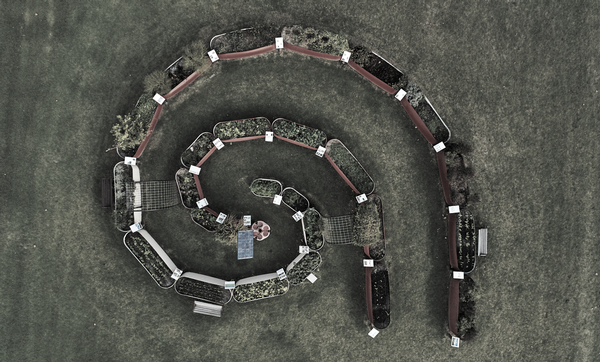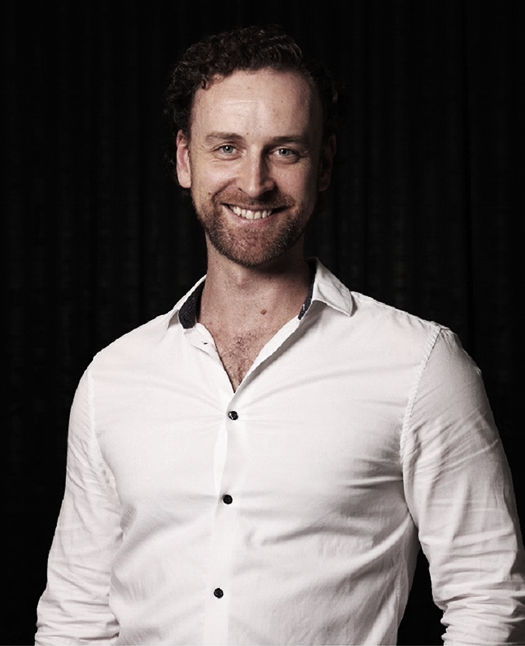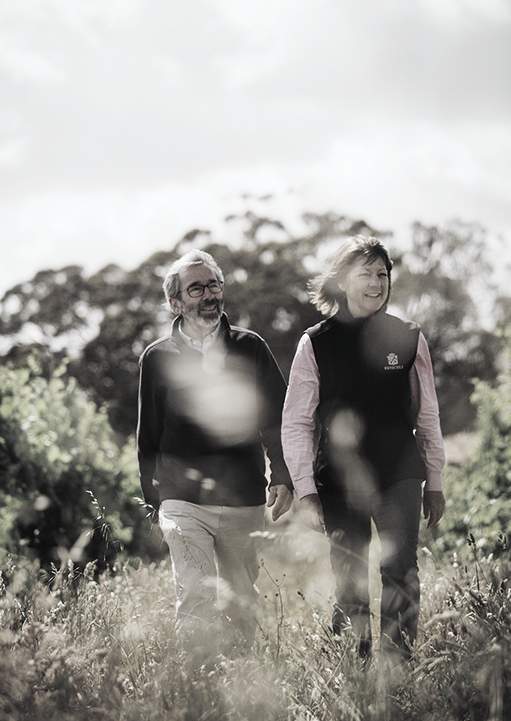Credaro | 100 Years in Margaret River

The Credaro story is one of love, tradition, family and innovation. The Credaro family has been farming, living and making wine in the Margaret River region since 1922, when Cesare Credaro planted the first Fragola vines. Born in Northern Italy, Cesare made his way to Fremantle to forge a new life on West Australian soil. He worked hard as a sleeper cutter to save money for a ticket to bring his first love and eventual wife Maria to Australia. They married in Australia and in 1928, welcomed their son Albert and purchased 146 acres of land in Carbanup.
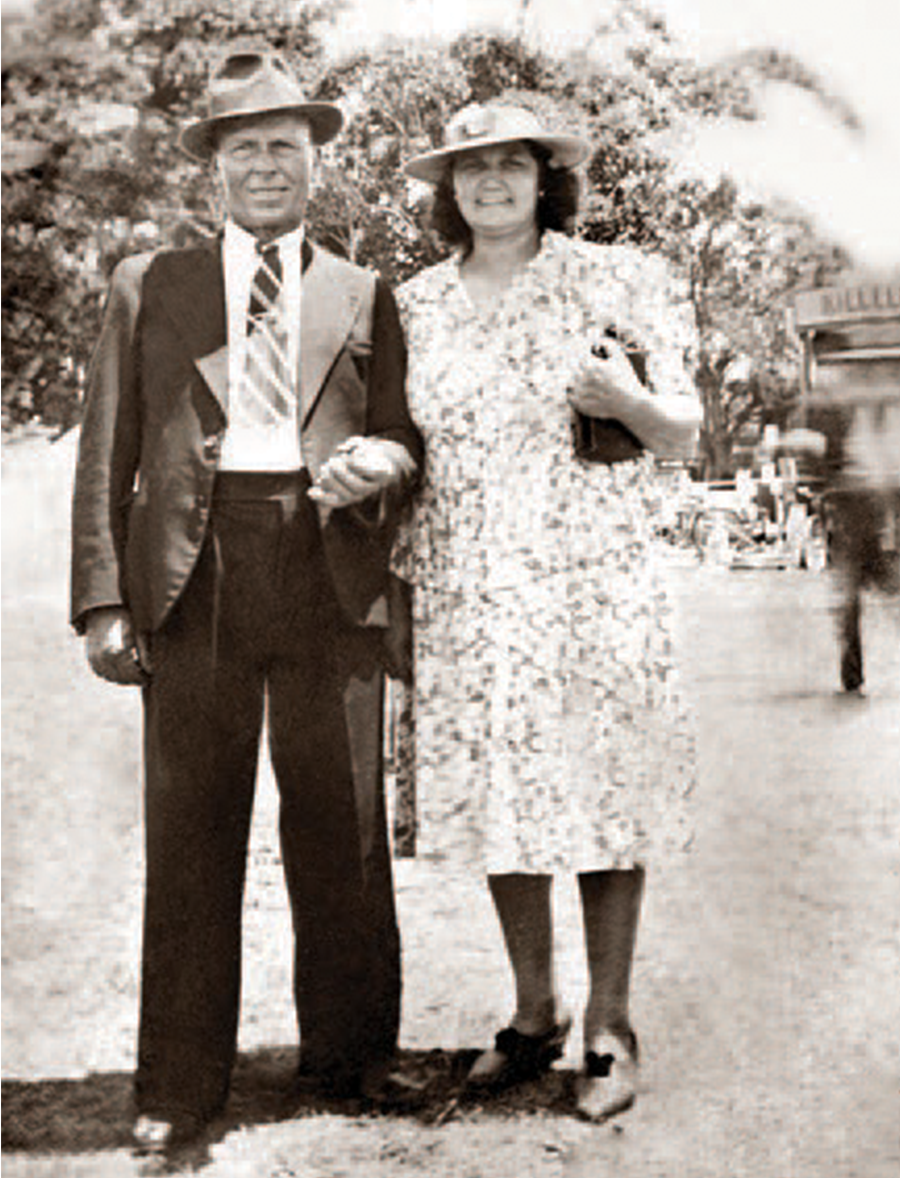
Cesare and Maria Credaro
Albert’s son Robert spent his youth playing cricket on Bussell Highway and helping his father tend to the livestock and produce on their land. Robert and his wife Phyllis still have their hands and heart in the business, but have maintained succession of their humble in nature but mighty empire through four sons Matt, Mike, Chris and Jason. Matt is the face of the brand and works closely with brother Chris to oversee the vineyards and winemaking. Chris’ twin Mike oversees the avocados and pomegranate side of the business, and Jason, who has his own partnership Shelter Brewery, acts as a strategic consultant and sounding board to his brothers. The entire family are intrinsically linked through a blood line of hard work and the common goal of what Matt describes as simply, “Creating a better life for the next generation.” Rob and Phyllis’ daughter Emma and the Credaro in-laws and grandchildren round out the team that is as much a support network of colleagues and specialists as it is a close-knit and loving family.
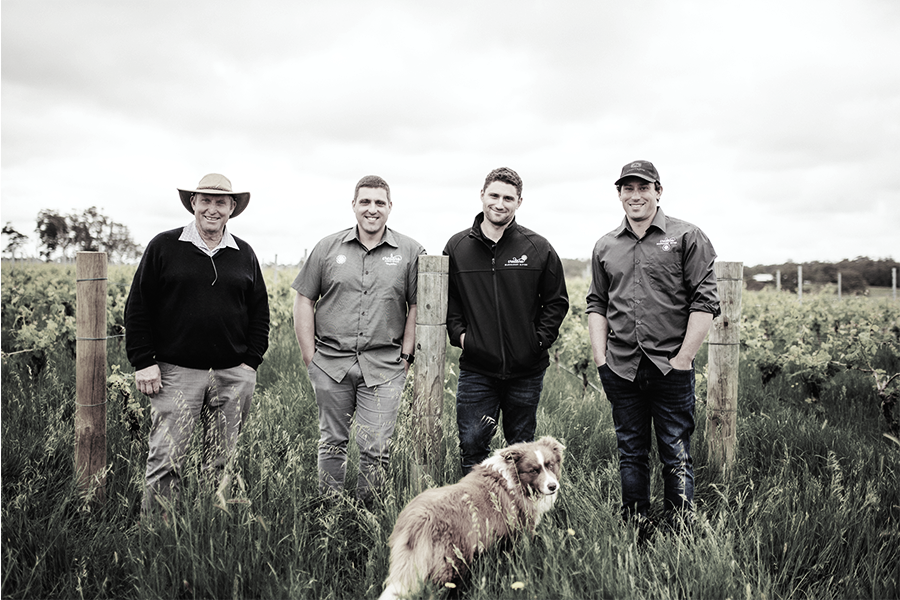
Robert, Matt, Chris and Mike
Cesare set the foundation for the future. He laid a blueprint of hard work, risk taking, winemaking and family values that created the standard for the way the Credaros farm and live today. They will continue to honour the good fortune to have landed in Margaret River 100 years ago by producing products of high quality and integrity and doing it side-by-side.
Congratulations Credaro on an incredible milestone. We raise a glass to you to celebrate your family and its rich and significant history in Margaret River.
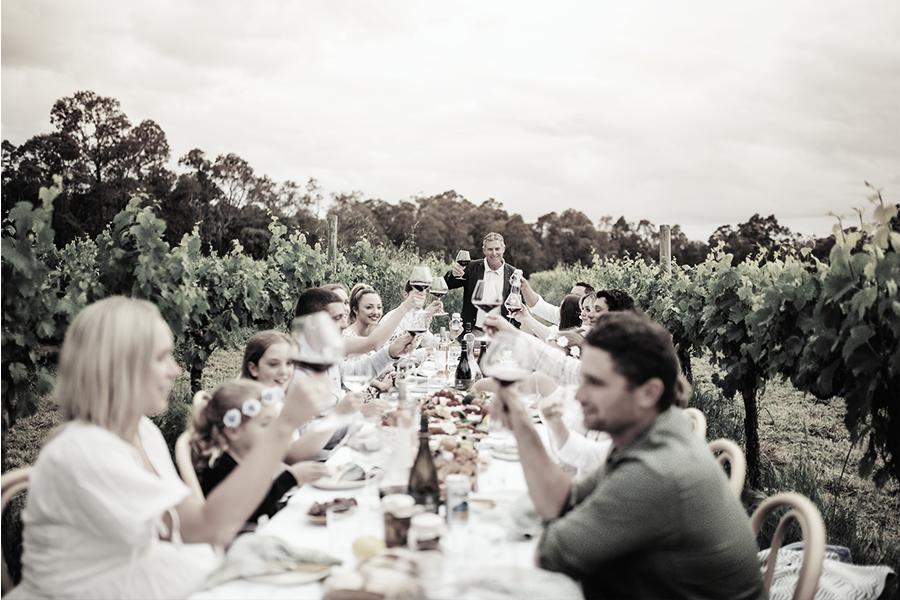
Credaro Family
Celebrating 25 Years of Whistler Wines
The first Whistler wine was made 25 years ago, however the Pfeiffer family’s journey in the Barossa began long before. Grape growing has been a part of the Pfeiffer family for four generations.
Founder Martin Pfeiffer grew up wandering through the vines with his father in Loxton and was the Head Vineyard Manager at Penfolds. Martin and Sally Pfeiffer purchased Whistler’s Heysen Estate property in 1982. The land was first used for crop and sheep farming and across the span of 15 years, the family hand planted 3,000 trees, designating the future vineyard blocks. The first vines planted on the land were Shiraz cuttings from the famous Penfolds Grange vineyard (Kalimna 3C clone) in 1994, followed by Semillon a few years later. In 1997, Whistler Wines bottled their first Shiraz. After only a few short years, Whistler Wines started to make their mark in the wine world, being widely recognised for their Shiraz and Semillon wines.
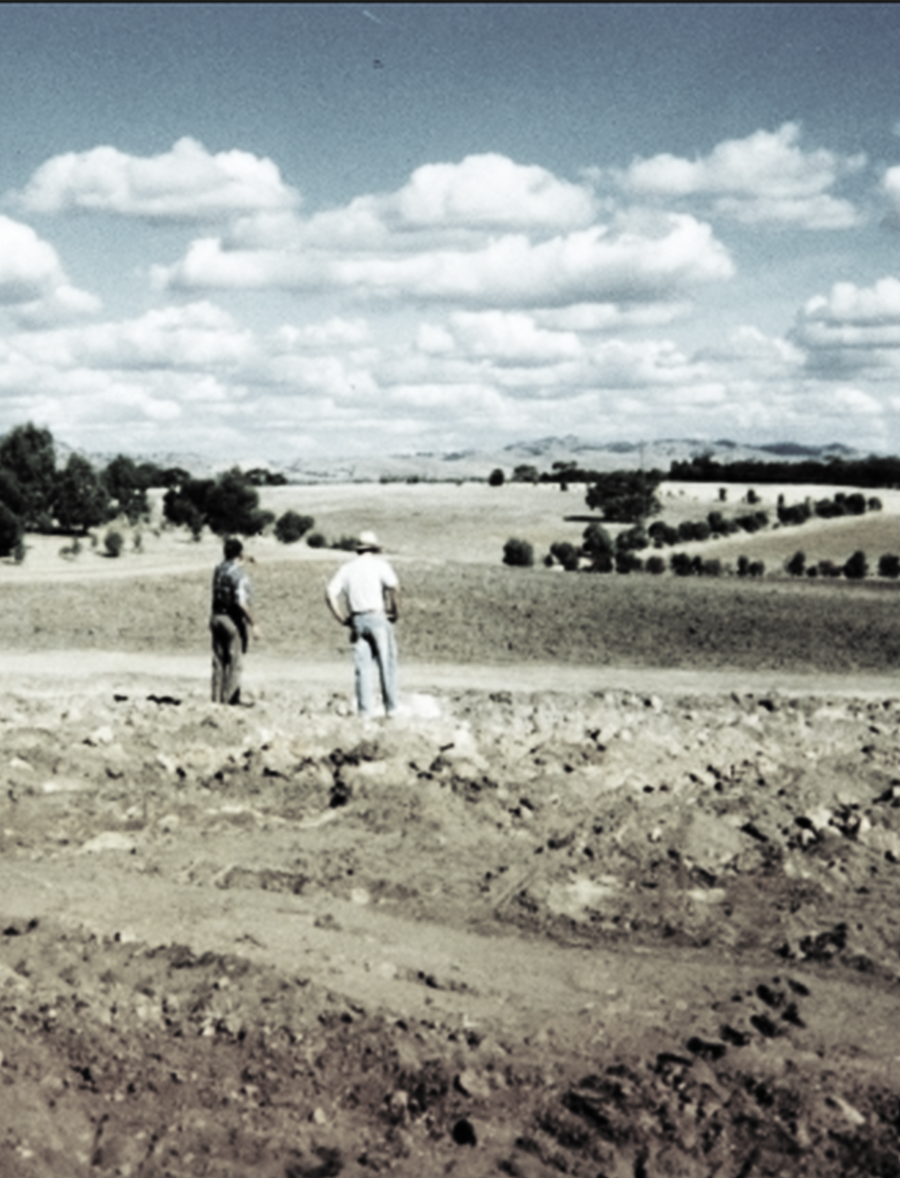
Heysen Estate 1982
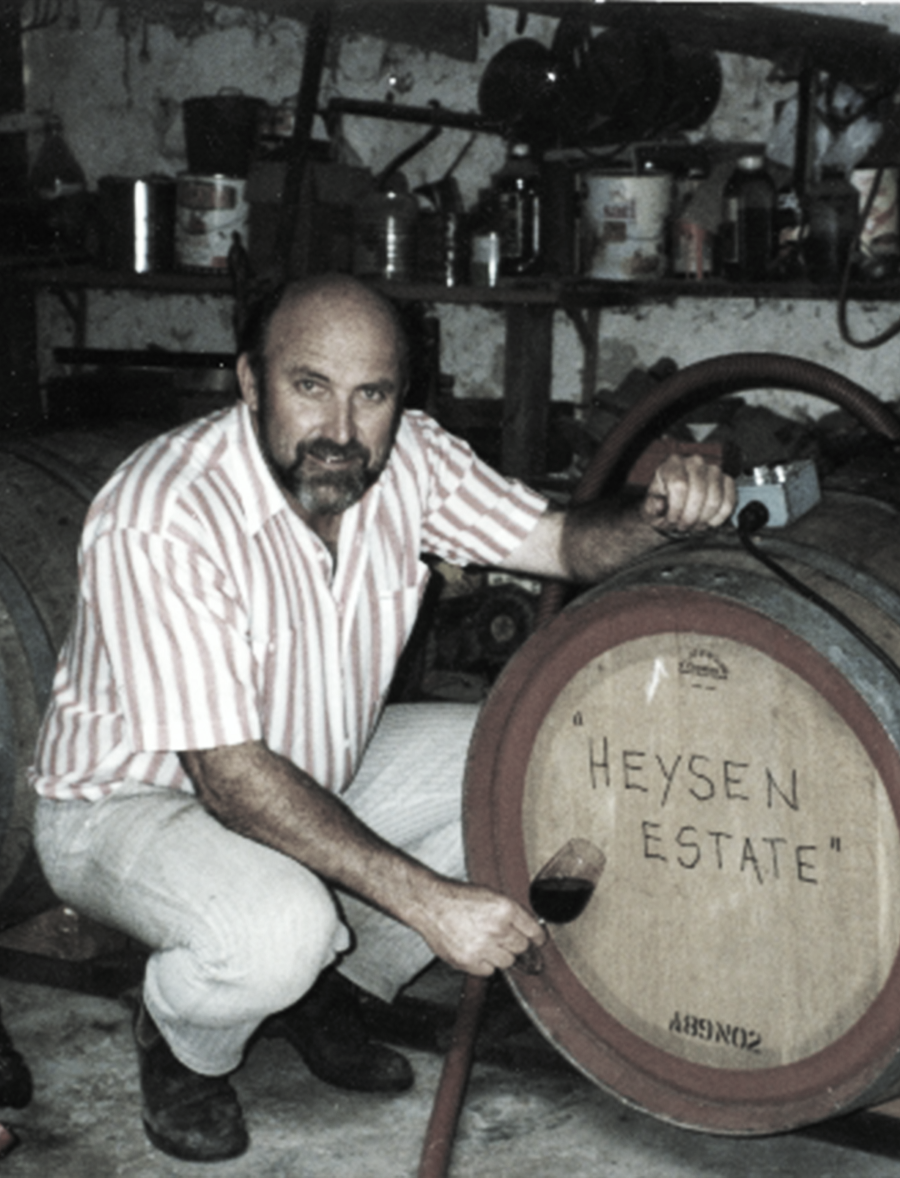
Martin Pfeiffer and Whistler's first Shiraz in 1997
As the next gen began to get more involved, Whistler started to place a bigger focus on sustainability and today, Whistler’s 15 hectares of vineyards operates completely under organic and biodynamic practices. Whistler produces both lighter, drink-now wines as well as the traditional styles.
Today, Whistler remains fully family owned and at the helm are Sam and Kelsey Pfeiffer. Sam and Kelsey, along with winemaker Michael J Corbett, are passionate about producing sustainable, handcrafted Barossa wines. The recently reimagined Crafted Range showcases the evolution of the brand and also highlights the core of the Whistler philosophy; hand crafted, small batch, minimal intervention wines from vineyards using organic and biodynamic practices.
Congratulations to Whistler on 25 years of great wines. Cheers to at least 25 more 🥂
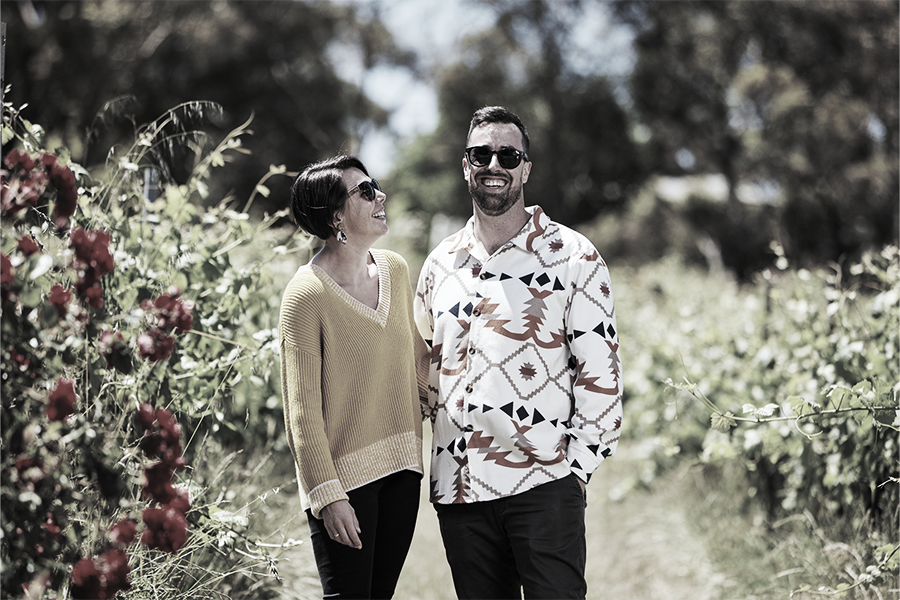
Sam and Kelsey Pfeiffer
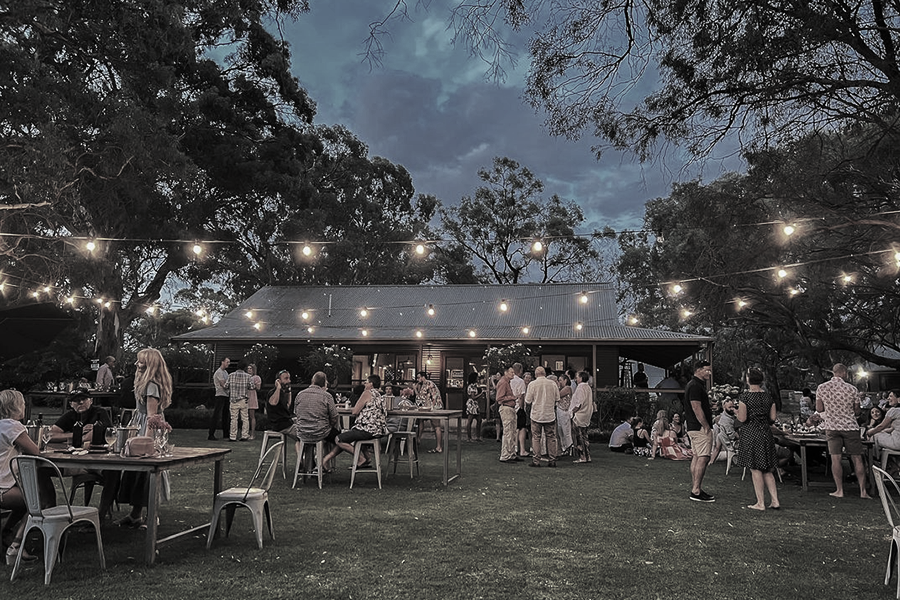
Celebrations at Whistler Wines in February 2023
The Rise of E-commerce
By Mark Faber, National Account Manager- E-commerce and Alternative Channels
Day by day, week by week, more of our lives become intertwined with the internet. We use it to book our holidays, buy our groceries, watch movies, chat with our friends, hold work meetings, use it to recommend a new restaurant, and now our kids use AI do their homework on ChatGPT. And that shift is happening faster than anyone anticipated.
“Covid-19 has accelerated a customer shift to digital channels, with customers not only spending more online but also using websites as a virtual sales assistant to inform purchasing decision”
-Distilled, Issue 8, December 2022.
Mezzanine The Fine Wine Specialist rode the covid wave and did well in e-commerce during those strange few years. Across our top 10 e-commerce retailers, we increased supply to these customers by an average of 71% from 2020 to 2022. Whilst the e-commerce channel has slowed post the lockdown-driven success, supply of wines to e-commerce retailers remains strong, up 45% on pre-covid numbers. This growth aligns with our own investment in supporting the data, content and supply needs of these customers.
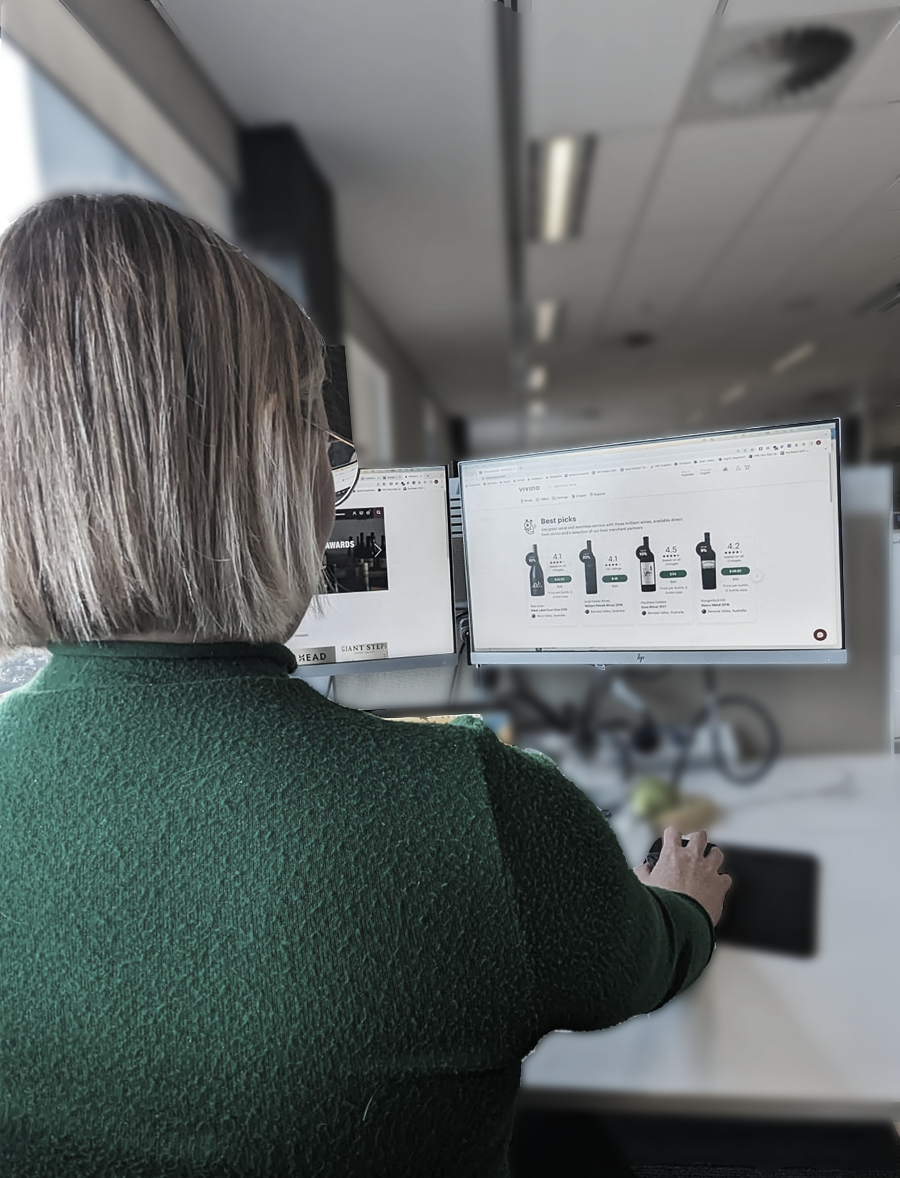
I saw the other side of continued lockdowns as the Head Wine Buyer of United Cellars, Australia’s largest independent wine e-retailer. We had to adapt fast to the unprecedented occurrences of the last few years, and it forced an evolution of that whole channel. I have recently joined the Mezzanine The Fine Wine Specialist team and bring many learnings about this channel. Data is the new currency used in e-commerce. Websites learn about customer habits and taste preferences like a Sommelier or Wine Consultant would. E-commerce can demystify this oft-complex topic and expose people to new styles of wine they may have never heard of. E-commerce can tell relevant, tailored stories about wines and the people behind them with rich content, all of it aimed at the right end consumer, helping to build brands and boost sales.
However, e-commerce is not a silver bullet by any means. Highly publicised hacks and data breaches have shone a light on the importance of security and data management. For us, there are still significant benefits though- it is a way to connect with millions of customers instantly, and the convenience is undeniable; everything you need at the touch of a button, delivered to your door.
So, where to next? E-commerce is a vibrant and exciting landscape, where literally anything is possible, and will clearly continue to play an increasingly important role in our everyday lives. We jumped in head-first when covid hit, which opened up a number of opportunities as well as risks, so now we must learn from this and think more long-term about how we grow with the right partners. Exciting times lay ahead for Joval in e-commerce as it continues to play a significant role in the transformation of the wine industry in the years to come. We continue to stay at the forefront of technology with several digital upgrades already in place or inbound soon, helping us to become the best and most respected fine wine distribution company in the e-commerce landscape.
Want to learn more about how Joval Wines are developing our capabilities to better service your e-commerce business?
Reach out to
Mark Faber, National Account Manager – E-commerce and Alternative Channels
0432 212 341
mfaber@joval.com.au
100 Years of Diana Madeline
2021 vintage marks the 50th year of plantings for cabernet sauvignon at the Cullen Wilyabrup vineyard. Serendipity allows it also to be Diana Madeline’s 100th year, beginning on 11th February 2023. It’s incredible to imagine the times of planting in 1971, with no real knowledge of how things would turn out, just faith and great vision to feed the early pioneers of what is now the iconic Margaret River region.
Born February 11, 1923, Diana Madeline was a trailblazer, studying physiotherapy when tertiary education was out of reach for most women; lobbying to protect Tasmania’s Lake Pedder and the Margaret River Coastline. Growing up surrounded by Tasmania’s wild beauty, Diana’s commitment to environmental sustainability came long before winemaking. Diana was the beating heart of Cullen Wines, working hands-on for many decades. She planted the vineyard, made the wine, and was even the first woman to win a Wine Trophy at Perth Royal Wine Awards for her Sauvignon Blanc.
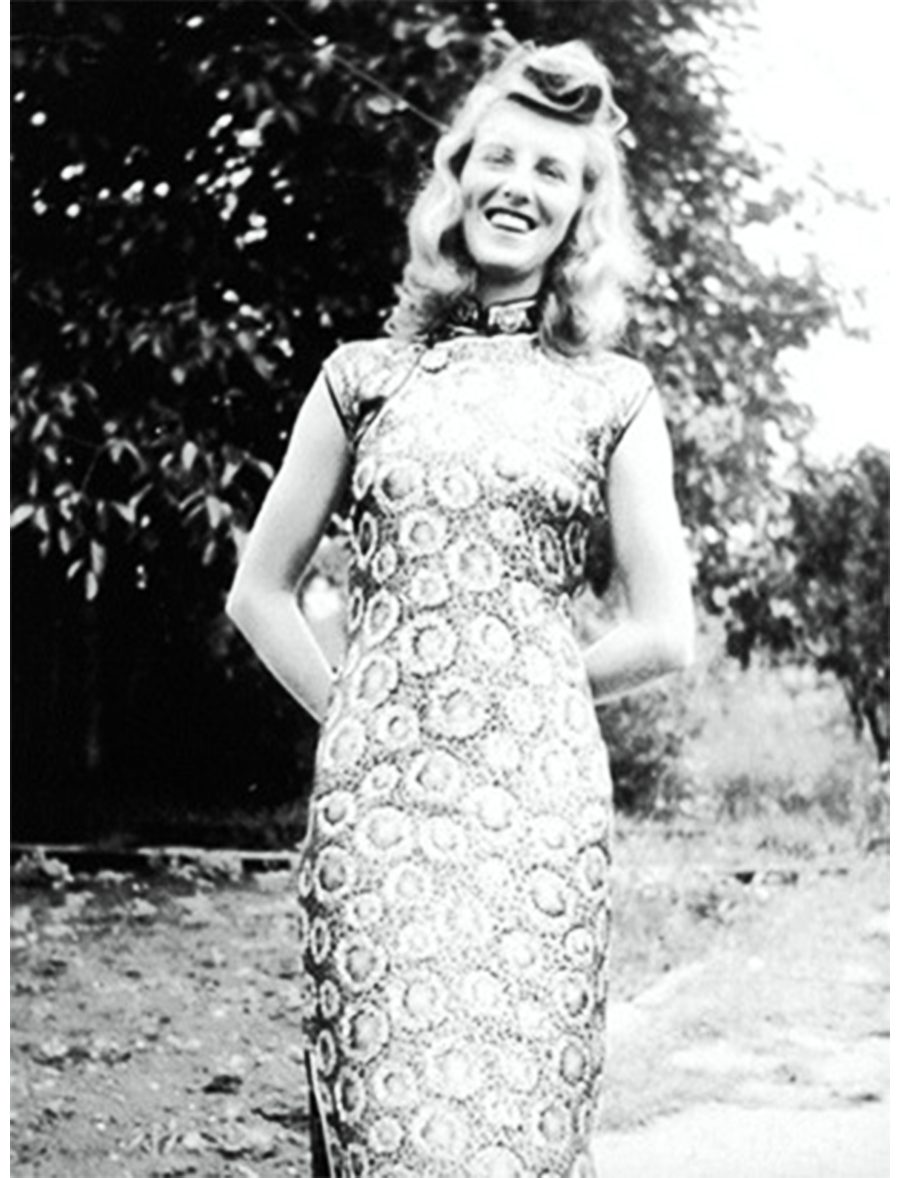
Diana Madeline 1940s
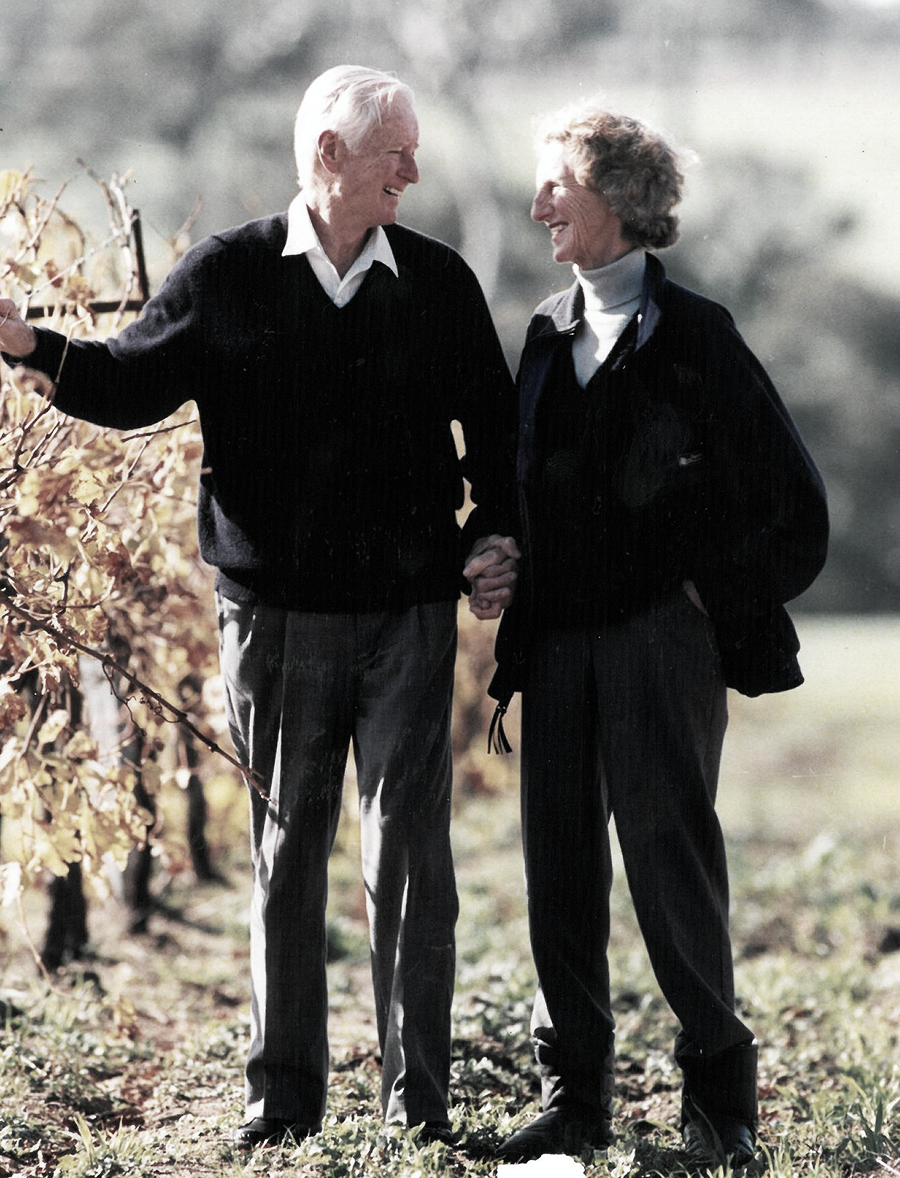
Diana Madeline and Kevin Cullen
Kevin and Diana travelled extensively throughout the world’s most renowned wine regions to discover and learn how to make exceptional Chardonnay and Cabernet. Their dedication to producing world class wines cemented the reputation of Cullen and the Margaret River region on the world wine map.
With Vanya’s natural progression to winemaking, she kept Diana’s dream alive by steering Cullen’s towards organics. After Diana’s passing in 2003, Vanya introduced the idea of bio-dynamics—achieving certification in both. Cullen Wines, a family-owned business, is now globally respected, carbon-positive, and producing world-class biodynamic wine—this is Diana’s enduring legacy.
A note from Vanya Cullen
Diana Madeline Cullen was gentle, generous and deeply compassionate – a forward thinker loved by all who met her. In February 2023, we will celebrate what would have been Diana's 100th birthday, raising a glass of her beloved Cabernet Sauvignon—Family Blend' Diana Madeline' in her memory.
Diana studied Physiotherapy when university education was out of reach for most women, even travelling to Paris to further her training. She lobbied to protect Tasmania's Lake Pedder and the Margaret River coastline and was the first woman in Busselton to wear trousers! She had the amazing ability to give her undivided attention to whomever she was with—making you feel like the most important person in the world.
Diana had six children and gave us a wonderful outdoors, nature-based childhood, always at the beach or working on the farm. She instilled in us the belief that we could achieve anything.
She helped plant Cullen's first rows of Cabernet and Riesling in 1971, later taking on the winemaking responsibilities and initiating the move towards organic and biodynamic practices. Cullen Wines, a family-owned business, is now globally respected, carbon-positive, and producing world-class biodynamic wine—this is Diana's enduring legacy.
As we toast her memory, I'd love to share Diana and Kevin's vision—to make great wine sustainably.
Thank you for taking part in the Cullen journey.
-Vanya Cullen
January 2023
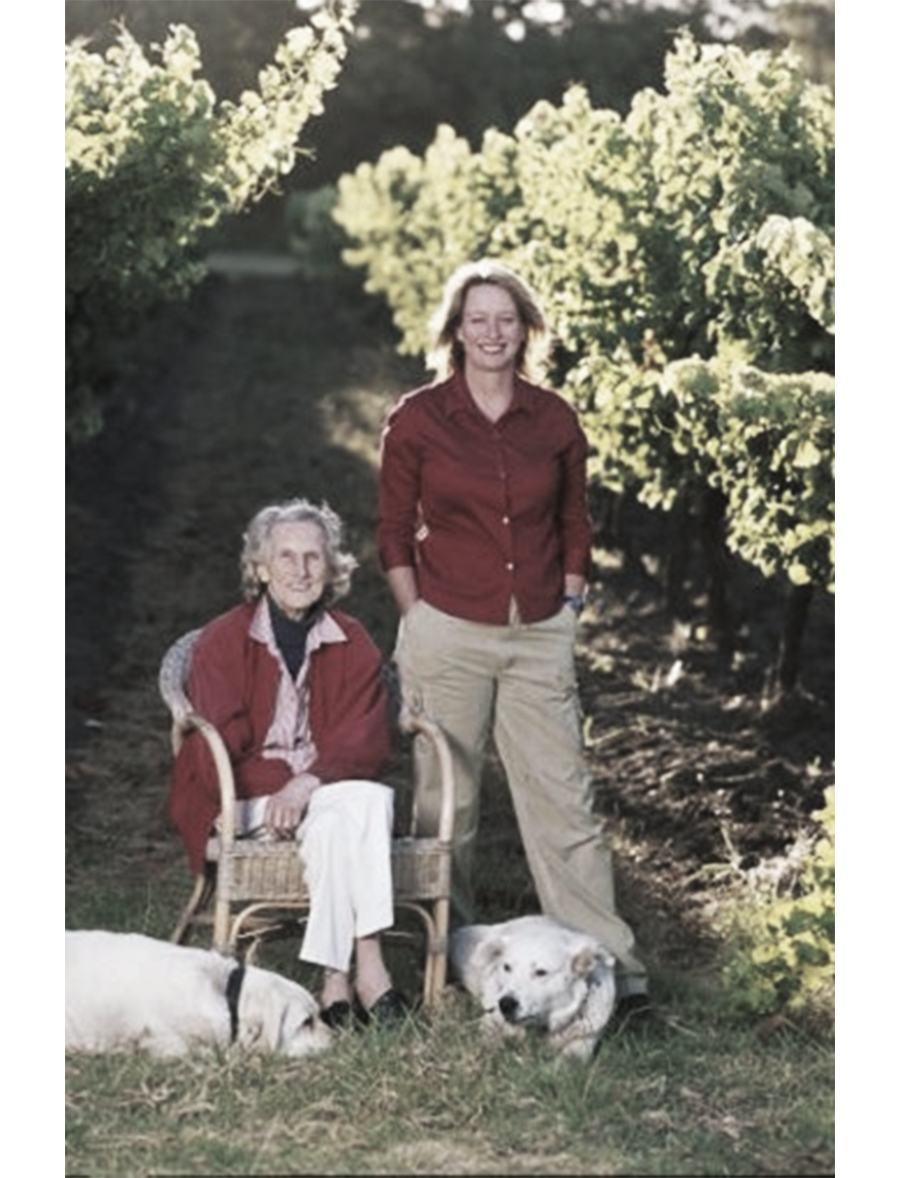
Diana Madeline and Vanya Cullen
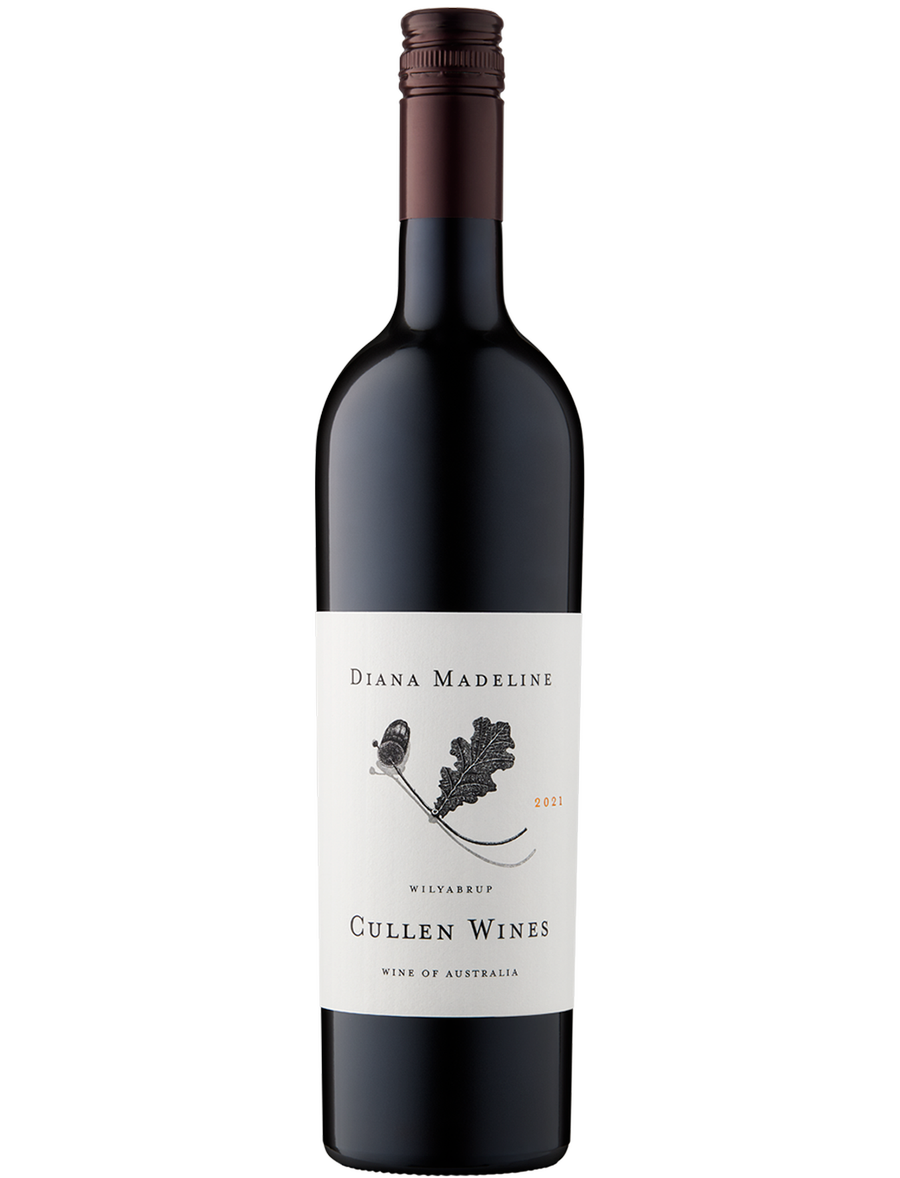
The recently released 2021 vintage of Cullen’s Diana Madeline is a testament to the vision and legacy of this pioneer of Margaret River, and the continued devotion to world class wine by Vanya Cullen and the dedicated teams at Cullen Wines.
This wine is the culmination of over 50 years of dedication effort and respect
for the land. The quest for better quality wine made using sustainable methods. The region is going from strength to strength on a national and international stage.
Cullen Diana Madeline 2021
Wilyabrup, WA
"A wine worthy of the occasion; complex but cohesive.” 97/100 Windsor Dobbin.
“This will surely be one of the top wines of the year, even at this early stage.” 98/100 Ken Gargett.
“Impressive off the bat.” 96+/100 Paul Edwards
CONTACT YOUR AREA MANAGER TO REQUEST AN ALLOCATION
Celebrating 60 Years of Henschke's Hill of Grace Shiraz
Mezzanine the Fine Wine Specialist is honoured to celebrate the extraordinary milestone that is 60 years of Hill of Grace Shiraz. The Henschke winemaking tradition is incredibly special and rich in history, and the Hill of Grace story is no exception.
"The 2018 Hill of Grace marks 60 years since my father Cyril captured the first shimmering edition of Hill of Grace Shiraz from the 1958 vintage. In 2018, we also celebrated 150 years of Henschke family winemaking. Nature collaborated too, delivering an exceptional season, that reflects the inherent characters of this wondrous vineyard site and will be considered a standout of this decade.”
- Stephen Henschke, fifth-generation winemaker
Fourth-generation winemaker Cyril Henschke took a trailblazing leap of faith when he began crafting single-vineyard, single-varietal wines, going against the prevailing Barossa norm of making fortified or blended wines. Following the success of his Mount Edelstone Shiraz he turned his attention to the small planting of shiraz, lying opposite the Gnadenberg Lutheran Church and farmed by his brother Louis. This congregation of ancient vines had waited in anonymity for 100 years before Cyril produced the first Hill of Grace Shiraz, a wine that would become recognised around the world.
Hill of Grace Shiraz is produced from pre-phylloxera material brought from Europe in the mid-1800s. The original vines were planted around 1860 by ancestor Nicolaus Stanitzki, in rich alluvial soil in a shallow fertile valley just north-west of the Henschke family winery. The vineyard comprises of red-brown earth grading to deep silty loam and has excellent moisture-holding capacity for these dry-grown vines. The Hill of Grace vineyard is a unique, delineated, historic site that lies opposite a beautiful old Lutheran church, which is named after a region in Silesia known as Gnadenberg, translating to ‘Hill of Grace’.
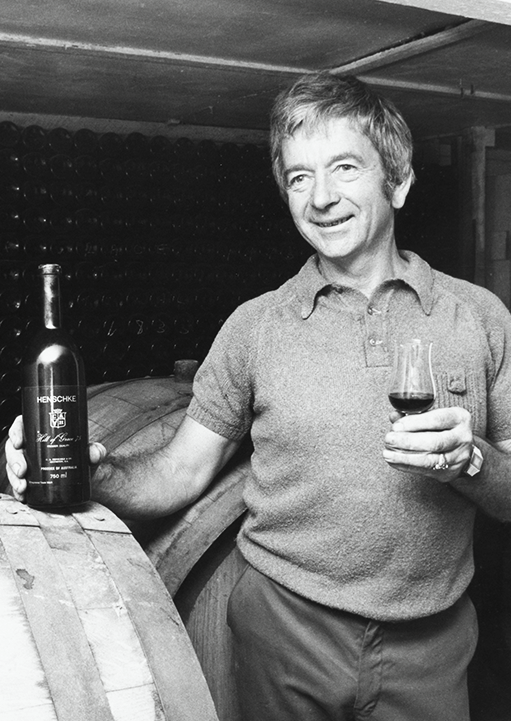
Cyril Henschke
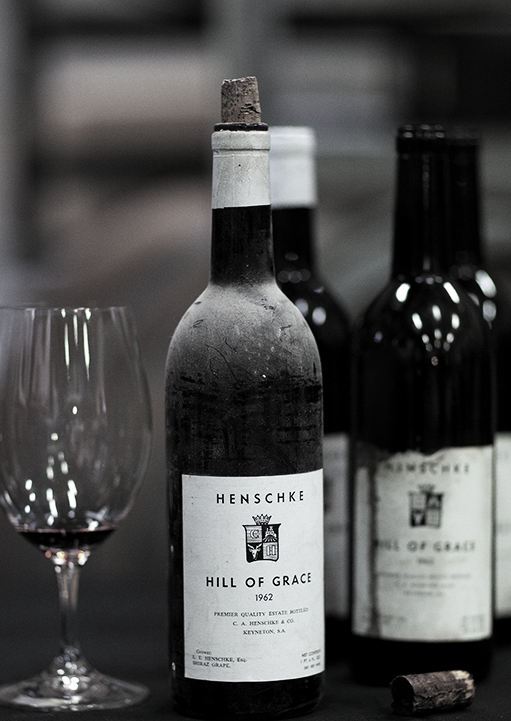
1962 Hill of Grace Shiraz
The story of a single vineyard
The Hill of Grace vineyard lies at the crossing of two dirt roads, just 4 kilometres north-west of the Henschke cellars. It is fenced with humble post and wire and not on a hill as the name suggests, but in a fertile valley that was once a riverbed. The adjacent stone ruins of an old post office are a reminder of a village faded into time.
The site is just 8 hectares on the original 32-hectare block acquired by Charles Flaxman for £1 per acre in 1838 and was leased to early Silesian settler Nicolaus Stanitzki in the late-1850s, who eventually purchased the block on 22 April 1873 for £480.
The first Henschke on these lands was Johann Christian. He came to help his son Johann August establish a farm in the new community of Parrot Hill near Keyneton in 1858. Even as the villagers dug in crops and felled trees for shelters and fences, plans were made for a simple church that would be the heart of their settlement. Completed in 1860, it was named Gnadenberg Lutheran Church, after a region in their homeland. Church and vineyard would share this name or at least the English translation: Hill of Grace.
It is believed the shiraz cuttings planted by Nicolaus Stanitzki around the year 1860 were transported by early settlers from the Hermitage region of France.
Thirty years after Nicolaus planted the Hill of Grace vineyard, it was sold by his heirs to Johann Christian Henschke’s son Paul Gotthard. But Nicolaus’s connection to the vineyard was not lost. His granddaughter Johanne Ida Selma Stanitzki married Paul Gotthard’s son and winemaking heir, Paul Alfred. This entwined the family histories for all time, with Nicolaus and Johann Christian joined as maternal and paternal forebears of the Henschke wine dynasty.
After Paul Gotthard’s death in 1914, the vineyard was transferred to his son Julius Philip Henschke. Then in 1951, ownership was transferred again within the family to his nephew Louis Henschke, brother of fourth-generation winemaker Cyril Henschke.
Louis Henschke added shiraz, riesling, semillon, mataro and sercial to the shiraz on the Hill of Grace vineyard, gently nurturing the vineyard using the traditional organic ways of his ancestors. After his death in 1990, Stephen and Prue continued to protect and care for the small vineyard.
For more than 100 years, the Hill of Grace vines danced unremarkably through the seasons before twenty-eight-year-old winemaker Cyril Henschke decided to take a leap of faith and began crafting beguiling single-vineyard, single-varietal wines in the Eden Valley.
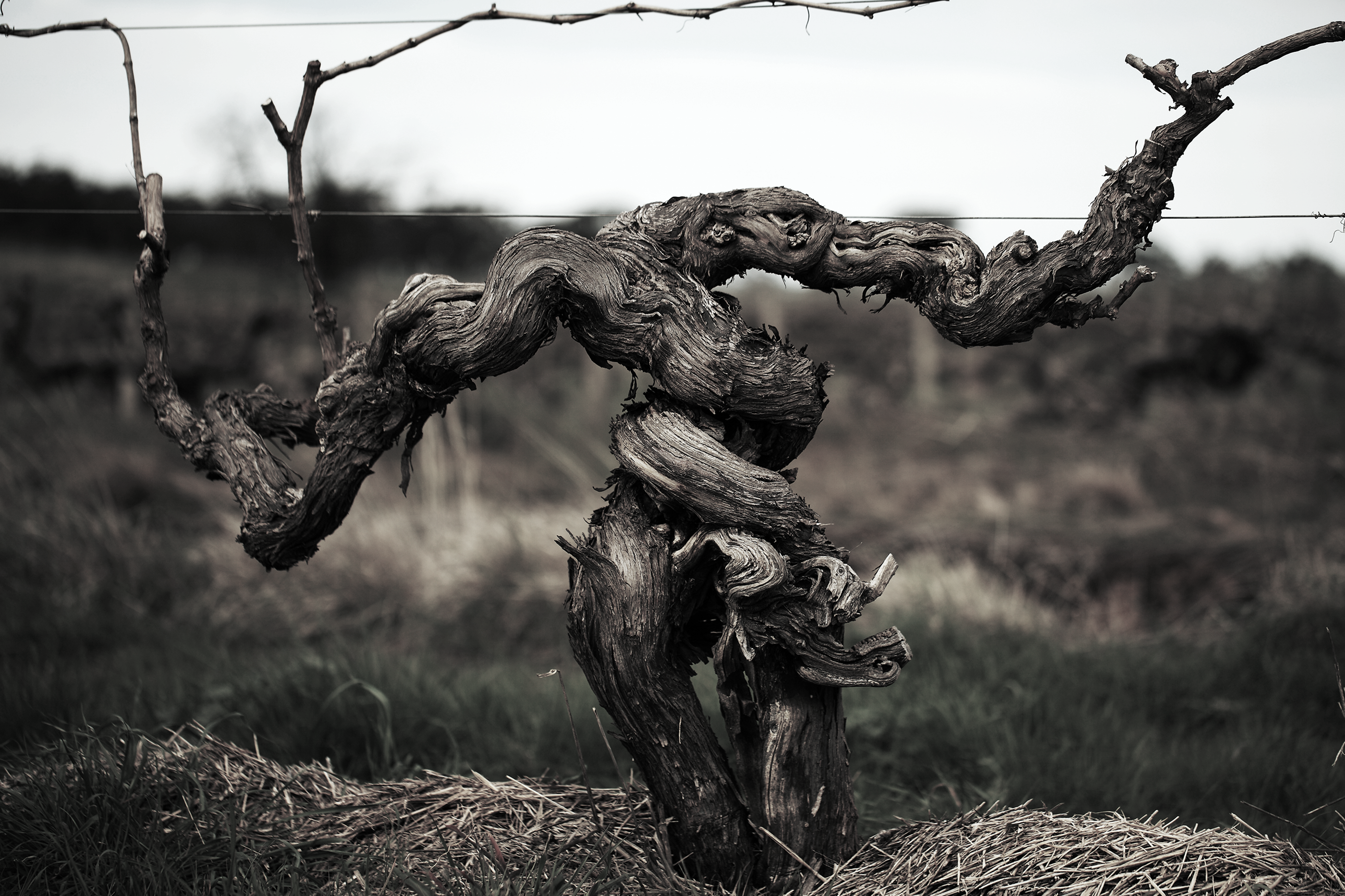
Hill of Grace Shiraz Grandfather vine
Today the oldest Hill of Grace vines are over 160 years old. Planted on their own roots they are a living genetic treasure: a poignant reminder of the European vine heritage destroyed by phylloxera in the late-1800s.
Just half of the Hill of Grace vineyard is planted with shiraz—designated as eight individual blocks. Only the six oldest blocks are used in Hill of Grace Shiraz. The remaining 4 hectares are planted with riesling, semillon and mataro. For many years Hill of Grace Shiraz was the solitary star of the site, but in 2001 Stephen and Prue created Hill of Roses from the nursery shiraz vines. In 2008 they made the first Hill of Faith Mataro and, in 2012, the first Hill of Peace Semillon. These additional single-vineyard wines are only released from the best seasons.
Centenarian and ancestor vines provide the magical ingredients in Hill of Grace Shiraz. Majestic and gnarled, the oldest, known as ‘The Grandfathers’, are dry-grown—which allows the plants to find balance with nature—and are naturally low yielding due to their age. They deliver berries of incomparable texture and complexity, which gives Hill of Grace its trademark elegance, intensity and finesse.
The average yield is around 2.5 tonnes per hectare. Shiraz is planted with 3.05–3.55 metres between rows and anywhere from 3.1–4 metres between vines. The 2-metre high Vertical Shoot Positioned (VSP) trellis has a fruiting wire carrying two canes, with a bud number of around forty to fifty per vine. The foliage is positioned in a vertical curtain, which helps to introduce more light into the canopy. Less vigorous blocks have a drooping canopy.
Yield estimates are carried out in early summer and cropping levels are kept in check by bunch-thinning at veraison when required. Grapes are usually picked in early to mid-April at a sugar level of around 24 degrees Brix. There is always a good acid/pH balance from this vineyard and very high anthocyanins (colour pigments) in the berries.
Fruit is picked across the six shiraz blocks at different times, according to ripeness and maturity, and the wine is made as individual lots. Keeping the blocks separate allows for variation of soil types, vigour and age of the vines—all of which produce different flavours that combine to make the complete wine.
“These wines are the history of the settlement of South Australia – a story of wine, of culture, of the region and of it’s people. It’s really quite extraordinary.”
- Stephen Henschke, fifth-generation winemaker
The vineyard is run using organic and biodynamic practices. Permanent swards of mainly native grasses are mowed low in the rows. Organic compost covered by a wheat-straw mulch under the vines helps to retain soil moisture, build up organic matter and microbial life, and inhibit weed growth. Constant monitoring for pests and disease through the growing season reduces the need for spraying. Local native plants are used to provide nectar, which attracts beneficial insects that assist with pest and disease control.
The influence of the moon cycles has been an important and familiar feature in the operation of the Henschke vineyards. Mysteriously the Hill of Grace vines, whether the vintage arrives early or late, are ready for harvest close to the full moon after the Autumn equinox (Easter). Decades of vintages have shown that this is the optimal time in the moon cycle for harvest. Curiously, by the calendar, the date of Easter can vary by up to thirty-five days.
When Stephen puts his nose to a glass of Hill of Grace Shiraz, there is far more to discover than just the flood of aromatic molecules. There is the magnificent weight and beauty of the wine’s history: ‘There are echoes of the church; joy-filled hymns, melodies of euphoniums and trumpets; the families who loved and wept, worked and sweated in the vineyard; who baked and broke bread, picked grapes, lived and died here… that is the life blood of this wine’.
Select members of the MTFWS sales team and trade customers from across the country came together to celebrate this momentous milestone – not just for Henshcke, but for the enitre Australian wine industry. We toasted to the courage and innovation that Cyril undertook, and celebrated the legacy that Stephen and Prue have continued. We share our congratulations with the entire Henschke family and winery team, and invite you to also share in this incredible milestone.
View Stephen and Prue Henschke introduce the 2018 Hill of Grace.
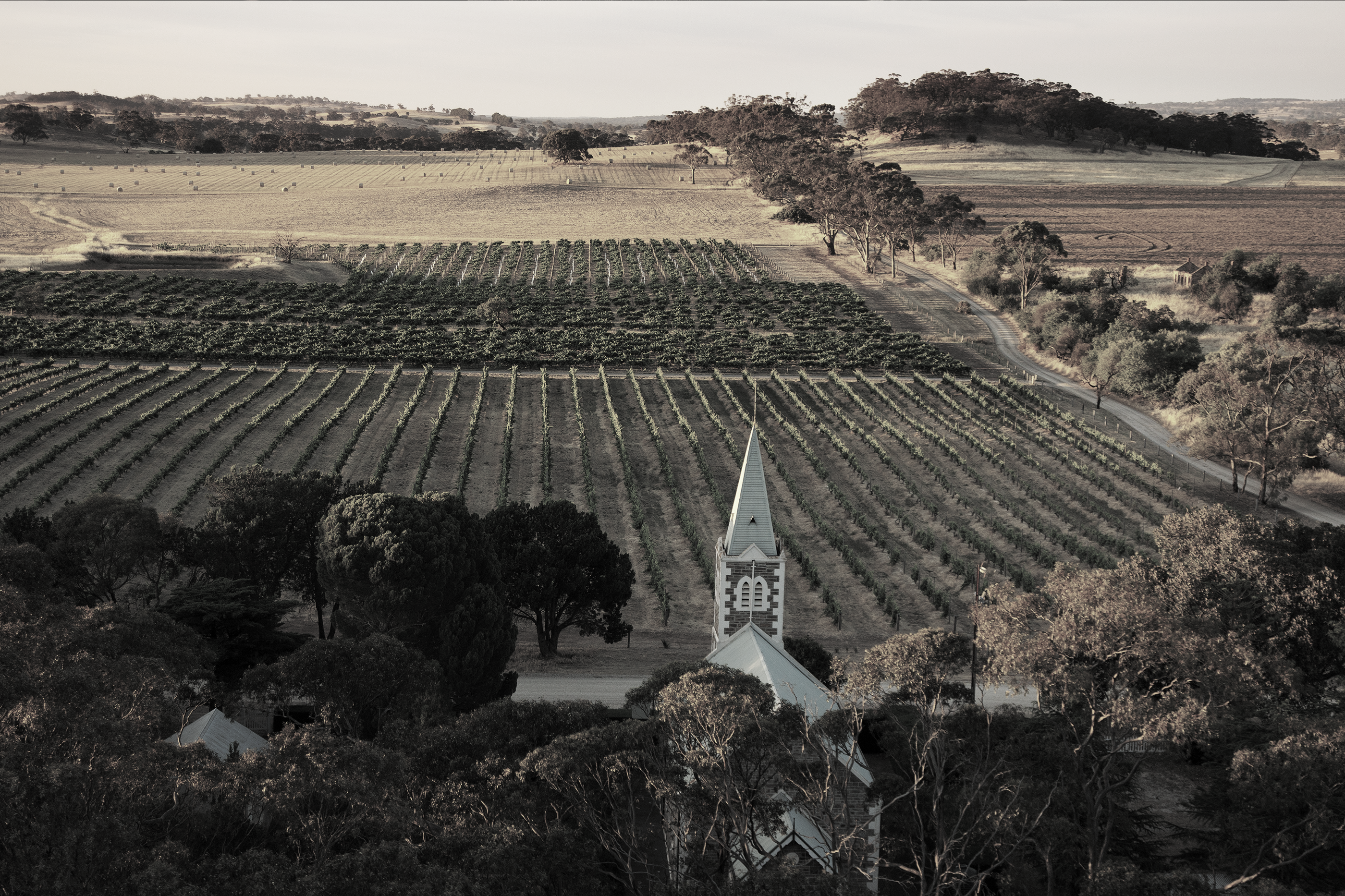
Hill of Grace vineyard
2022 Trade Activity Wrap Up
-Brennan Prior, Trade Marketing Manager
2022 was the first opportunity for Mezzanine The Fine Wine Specialist to consistently and regularly bring our curated collection to market and facilitate the connection between winery and trade in the way the wider fine wine industry has come to expect.
Throughout 2020 and 2021, each state and territory were playing their own game, running their own race, with the only consistency in restrictions being their inconsistency. This allowed some states, such as Western Australia, to go on as normal for most of the time, hosting our wonderful wineries from Margaret River to connect with local trade in the region and in Perth. Adelaide, for the most part, engaged in a similar openness with the many wineries on their doorstop just a short drive from any appointment or opportunity to meet and engage.
Activating trade activity in Melbourne during this time was another matter entirely. Hospitality was shut down numerous times at the drop of a hat, and weeks of planning for events and visitation from winery partners were cancelled. Interstate border crossings saw 2022 being the inaugural year of the Superfreak Events with John Hughes (Rieslingfreak, SA), an event that was literally 2.5 years in the making only because it fell victim to lockdowns several times. Tom Keelan (The Pawn Wine Co., SA) had trips cancelled four times, and we became well versed in on boarding new brands (Lark Hill, Canberra; Tomfoolery, Barossa Valley; Henschke, Eden Valley; Champagne Taittinger, France) through online calls and online masterclasses, with the assistance of many small perfume bottles. In 2021, Sydney and the wider New South Wales market joined the restrictions and slowly Queensland and our republics of SA and WA succumbed as well.
As a result of two years of inconsistent and diversified windows of trade activity, many of our 70+ collection of brands were eager and excited to be able to reconnect with the team and with the customers – new, old and loyally committed, and we were inundated with requests to bring them into as many markets as possible. 2022 saw a return to trade activity with an enthusiasm not seen in years, with new brands and new releases demanding sometime in the limelight to give them the attention and celebration the deserved. To facilitate as many of the requests as we could, most markets had 12 consecutive weeks of visits, events, masterclasses, team trainings and lunches.
Some highlights include: immersive trade masterclasses hosted by Justine and Stephen Henschke with iconic restaurant groups such as Lucas Group, Trader House, Fink and Shell House, as they travelled for their 2017 Single Vineyard release; the bi-annual Nanny Goat benchmarking evets which continue to showcase the evolution of quality and style of this Central Otago winery; the long awaited Superfreak events allowing the wine industries most loveable and fun John Hughes to comes to cities far and wide spreading his passion and devotion to Riesling; Quartz Reef, the original winery of the Mezzanine portfolio, flying across the Tasman to connect with the sales teams after many years apart; a brand new look to In Dreams, launched in Melbourne in June; Craggy Range’s winemaker Julian Grounds conducting an extensive and in depth tour of Sydney; Welcoming Clovis Taittinger to new and old friends across the Eastern Seaboard; masterclasses hosted by Peter Fraser for the Yangarra single block release in some of the country’s best restaurants and then keeping things fun and casual with the Other Lunch Club events bringing together sun, the outdoors, and delicious wines made from grapes grown in the right place.
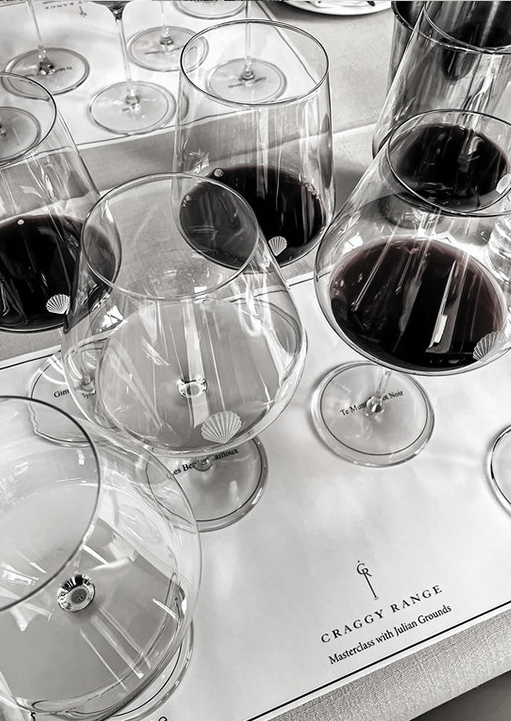
Craggy Range Masterclass in Sydney with winemaker Julian Grounds.
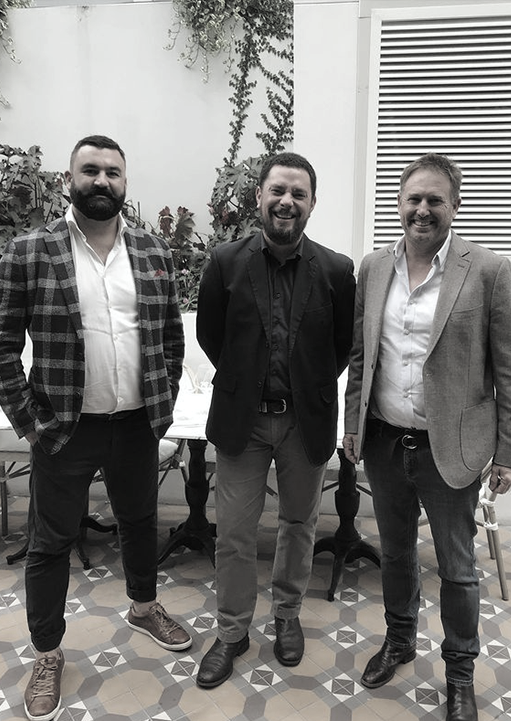
Queensland's Craig and Jamie with Yangarra winemaker Peter Fraser.
As we move forward into 2023 we are looking forward to returning to a more structured, consistent and regular opportunity to bring our winery partners and trade customers together. We have a new team with fresh ideas to bring to life our brands, to connect them with our customers, and we encourage as many of you to join the journey.
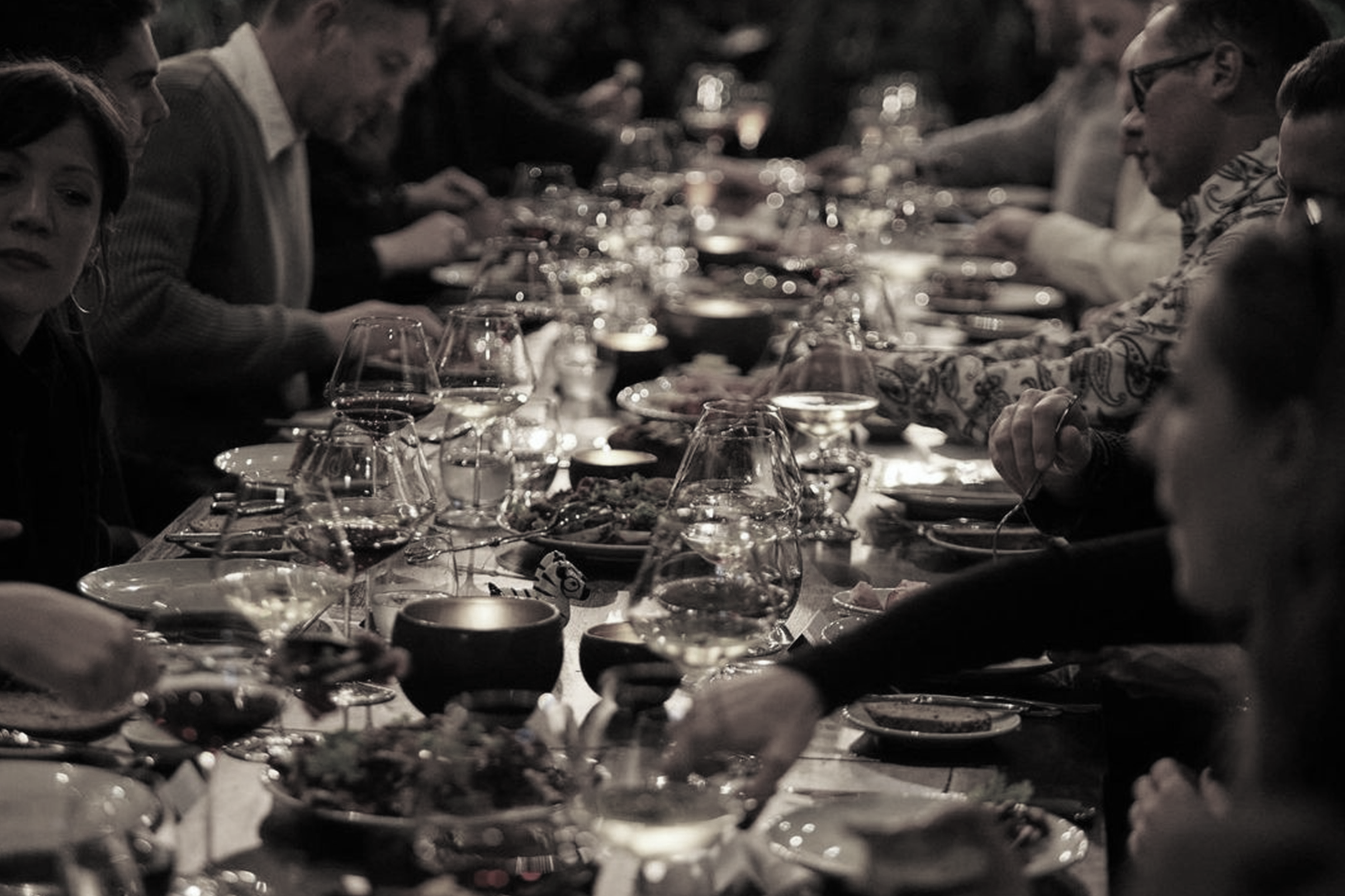
In Dreams event, Melbourne
Mezzanine the Fine Wine Specialist will celebrate their collection early in the new financial year, and until then we look forward to bringing to you opportunities to meet and connect with Lark Hill, Whistler, Penny’s Hill, Domenica, Unico Zelo, Champagne Taittinger, Craggy Range and celebrate incredible milestones such as Henschke’s 60 years of Hill of Grace, Cullen’s 100 year celebration of Diana Madeline, Yangarra’s new Cellar Door and annual single block release and Credaro’s centenary of grape growing.
Look out for all the news and updates on our trade activity by following @mezzanineTFWS on Instagram and signing up to our Contours eDM – a quarterly update on all the musings and happenings across Mezzanine the Fine Wine Specialist. We look forward to welcoming you to an exhilarating year ahead with our curated collection.
We look forward to having you back to our events!
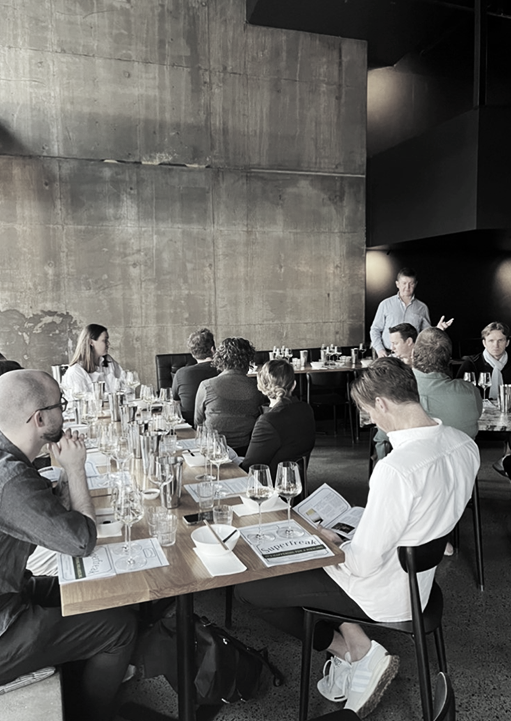
Rieslingfreak masterclass in Queensland with winemaker John Hughes
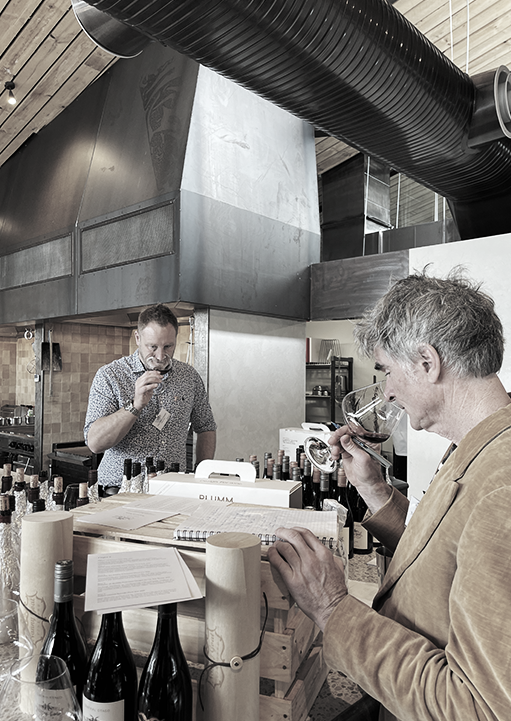
Nanny Goat Vineyard masterclass with winemaker Alan Peters-Oswald
Henschke welcomes new Senior Winemaker
Gwyneth Olsen has been appointed Senior Winemaker at one of Australia's most admired wineries, Henschke.
Gwyn joins Henschke with more than 15 years’ winemaking experience from various regions and estates around the world, working for Villa Maria Estate (Auckland), Chateau La Tour Figeac (Bordeaux), McWilliam’s Wines and Mount Pleasant (Hunter Valley), Domaine Dubreuil-Fontaine (Burgundy), Oakridge Wines (Yarra Valley), Briar Ridge (Hunter Valley), and most recently as Head Winemaker for Pepper Tree Wines (Hunter Valley).
Gwyn also has robust knowledge of winemaking and winery operations from a variety of regions across South Australia and New South Wales. Gwyn’s accolades and achievements include Gourmet Traveller WINE Young Winemaker of the Year 2014, Australian Wine Research Institute Advanced Wine Assessment Course DUX 2014, Len Evans Tutorial Scholar 2016 and Wine Australia Future Leaders 2017. Gwyn is also an accomplished judge at regional and national wine shows.
Based in the Barossa’s Eden Valley, Gywn has joined the Henschke winemaking and viticultural team; Chief Winemaker Stephen Henschke, Winemaker Andy Cummins and Assistant Winemaker Fraser Armstrong, and Chief Viticulturist Prue Henschke and Viticultural Technical Officer Adam Pietsch.
The upcoming 2023 vintage will be Gwyn’s first at Henschke; the same year the winery and vineyards have received Sustainable Winegrowing Australia certification, which is a testament to the Henschke family’s commitment to sustainability and desire to ensure the created environment sits in a healthy balance with the natural landscape.
Mezzanine The Fine Wine Specialist would like to congratulate Gwyn on her new role. Gwyn will be visiting select markets in the second half of 2023.
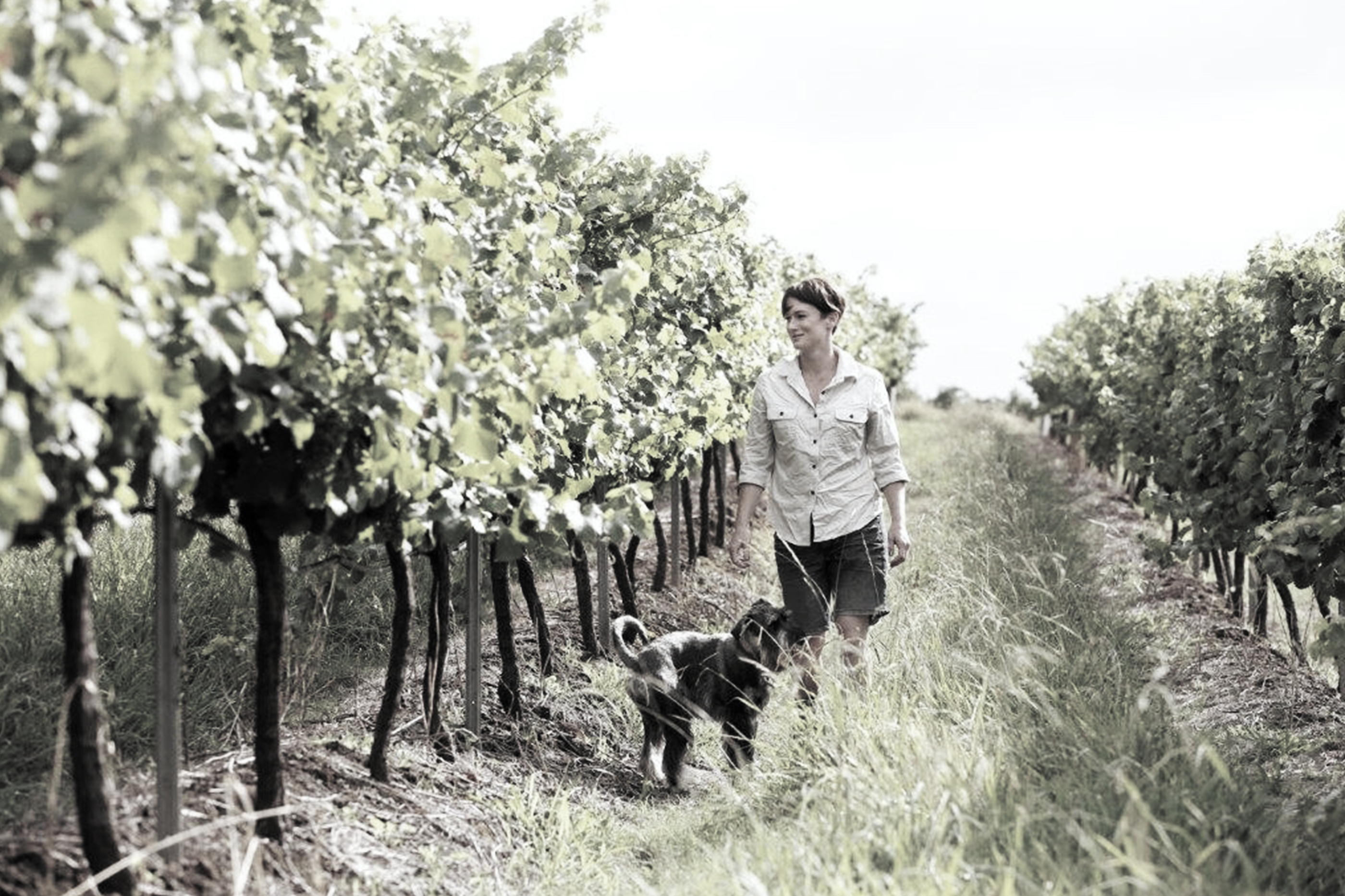
Welcome Stonier
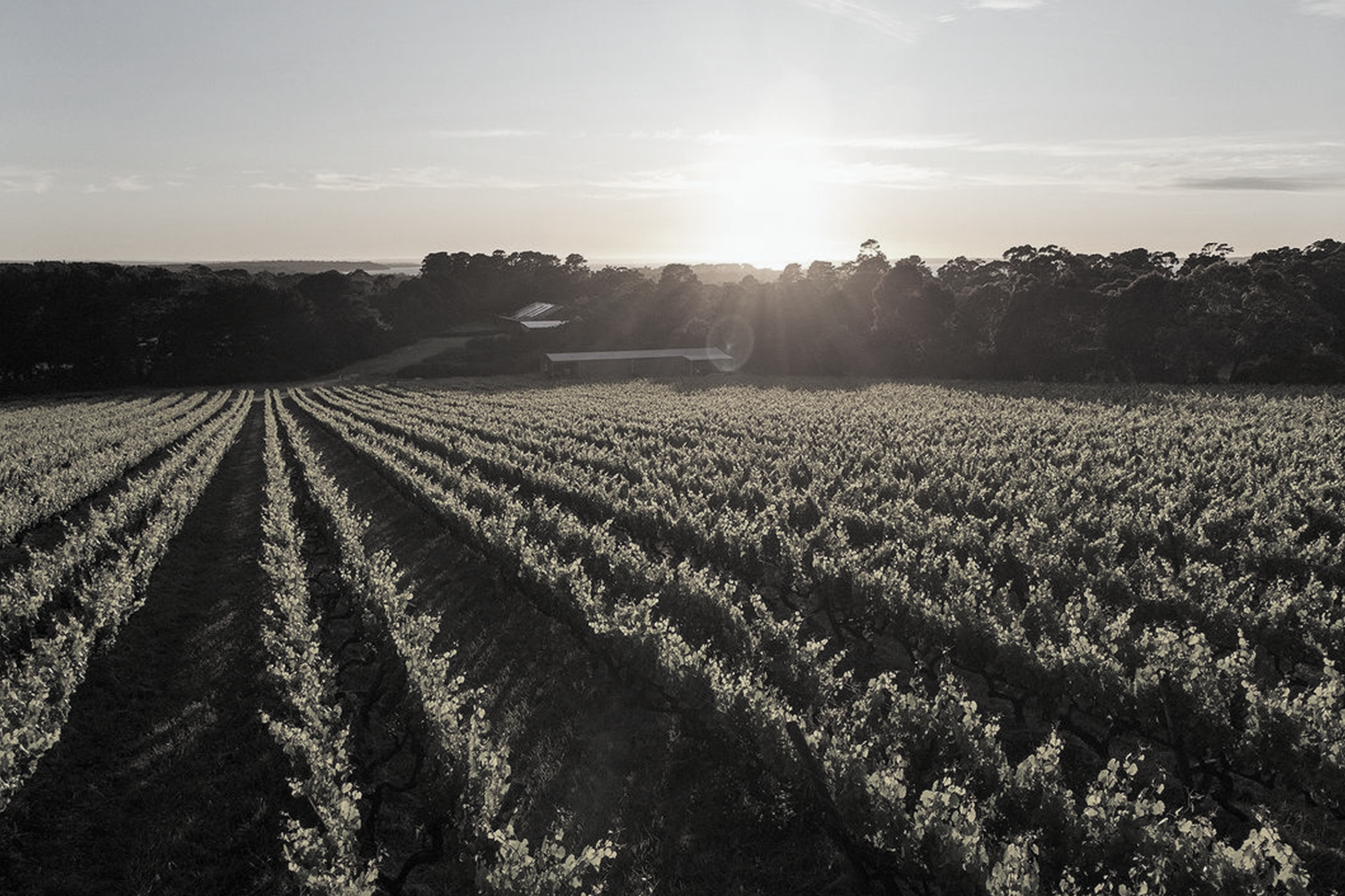
Some of you may have noticed a new arrival into Mezzanine The Fine Wine Specialist portfolio just prior to Christmas, Stonier Wines. Stonier are the leading producer of premium Pinot Noir and Chardonnay from the Mornington Peninsula. It marks a real milestone in our national representation of a Mornington Peninsula winery and cements our vision of bringing the best of region to our customers.
Stonier Managing Director, Aaron Drummond, who recently returned to the Mornington Peninsula after 8 years as General Manager of New Zealand’s Craggy Range winery, remarked “when my partners and I heard that Stonier was for sale we were super keen… given the quality of the wine, the exceptional vineyards and our shared aspirations of taking the best of Mornington Peninsula wine to the rest of the world.
“I grew up on the Mornington Peninsula with Brian Stonier’s grandchildren, so had a lot of exposure to the wines. They were iconic, and this is where we want to get back to…less volume with a focus on rebuilding on premise here and overseas, great farming, and a goal of making some of the region’s best Pinot Noir and Chardonnay.
“We needed a great distribution partner and after working with Mezzanine for the previous 8 years with Craggy Range, this was the obvious choice for Stonier. Mezzanine have a great team, a great portfolio, but more importantly they care and have integrity as a family owned company.”
“We all have plenty of experience in the wine industry and are passionate about this as a long term, world class, family orientated fine wine project."
- Aaron Drummond | Managing Director
Aaron similarly praised the team at Stonier, saying they would complement its great vineyards and growers. “Justin Purser joined Stonier as Chief Winemaker in 2022 after a decade at Best’s Great Western. While Justin has made some amazing wines (including last year’s Jimmy Watson winner) he has a real passion for Pinot Noir after spending four years at Domaine De Montille in Volnay.
“On the vineyard side, viticulturalist Tim Brown, will also be helping to drive the evolution in the Stonier vineyards, especially with a view to moving to organics. Tim’s experience with Pinot at places like Bindi and Place of Changing Winds will be a great resource for the team”.
As one of the oldest vineyards on the Peninsula, planted in 1978, Brian Stonier significantly transformed the world’s perspective of this region to produce globally heralded cool climate varietals with their 1999 Reserve Chardonnay winning Best Chardonnay AND Best White wine at London’s International Wine Challenge.
The aspect couldn’t be more beautiful, as the Mezzanine sales team discovered in a February visit. Vineyards overlooking the waters off Point Leo, a cooling salty breeze rustles through the canopies. We’re told 2023 will be a late harvest, but shaping up as another great as flavour builds on the vine. Varied row orientations and trellising makes for choice and control around how different pockets are treated in the vineyard, but also upon fruit hitting the winery.
What is below the surface, is all the more exciting. Stonier’s estate vineyards stand on the coveted red volcanic soil, elevated between 200 and 250 meters above sea level. These soils are porous and freely draining, resulting in deeper root establishment. This also leads to unprecedented concentration in the grapes and wines with greater aromatic attributes, fruit purity and exciting mineral tension.
The reprieve of the air conditioning was welcomed by the Mezzanine team, as we enjoyed a beautiful antipasto spread and tasting of the current releases in the Cellar Door, a space beautifully adorned with local artist’s bush landscapes.
The 2016 Sparkling was a bright, moreish aperitif sparkling, driven by lemon fruit and with a creamy bead and mouthfeel. It was surprisingly refreshing and primary, leaving many of us wishing we weren’t driving!
Then onto the 2021 Stonier, KBS and Reserve Chardonnays– what a vintage! The mild conditions have ladened these wines with ripe fruit, palate weight and intensity, seamless acidity, savoury layering from oak and lees, and persistent length. Stylish, delicious and will see enhanced honey and nut characters over the medium term.
The 2021 Stonier and Reserve Pinots were next up. Here we received lashings of bright, fleshy red fruits and in the case of the Reserve, underpinning darker broody fruit also. These were velvety medium to fuller-bodied wines, with raw silk-like tannins and a long savoury finish. Looking beautiful now, but excellent tension between acid, tannins and fruit point to strong aging potential. Case in point was our final treat, a look at the 2019 Windmill Pinot. From a steep, North-facing slope, and combining both whole bunches and destemmed parcels, this was very seductive drinking! Silky, long and sophisticated.
Our team would love to show you the wines of current vintage – 2016 Sparkling, 2021 Estate Chardonnay and Pinot Noir and 2021 Reserves – so please reach out to your Area Manager if you are interested.
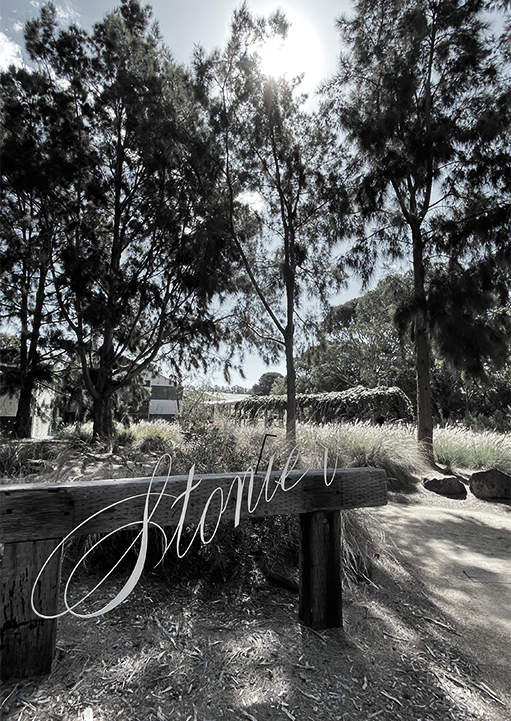
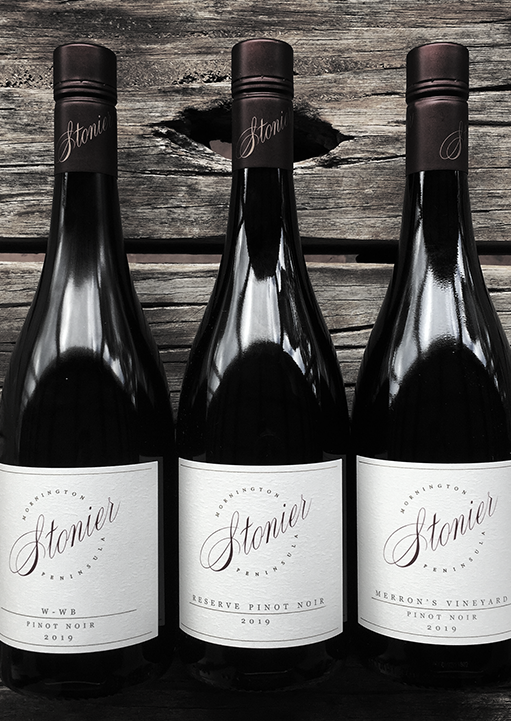
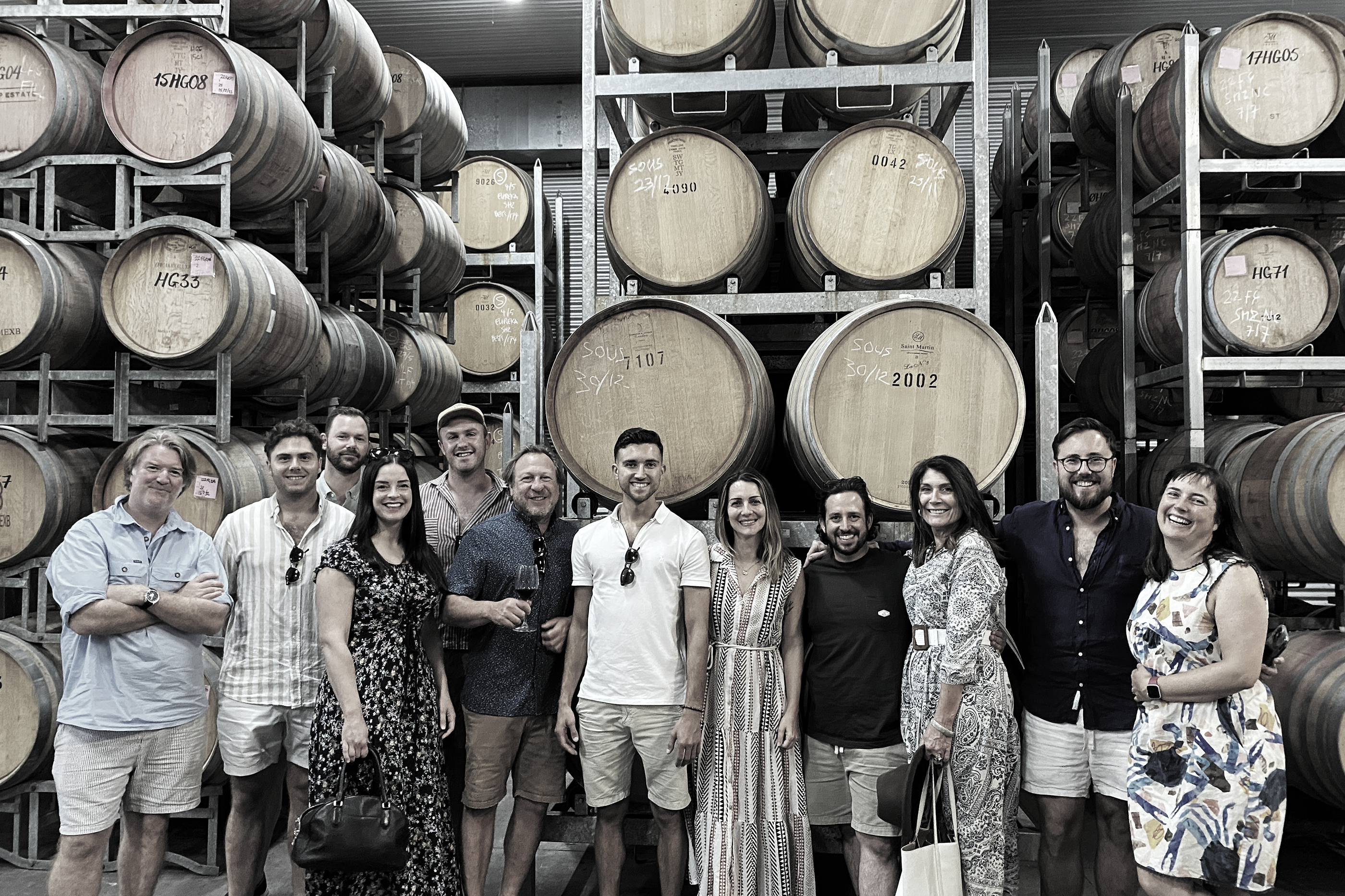
The Power of Prosecco D.O.C.
Five reasons to love, list and pour Prosecco D.O.C.
By Kate Lawton - National Business Manager, Bandini.
When asked by the team at Mezzanine The Fine Wine Specialist to contribute to Contours blog, I jumped at the chance to talk Prosecco.
While I love Champagne, I think Prosecco D.O.C. wines overdeliver in terms of wine quality. What interests me further is how they have carved out their own category in the shadow of the famous French fizz.
As a UK native working in the London wine scene from the 2000s I saw first-hand how Prosecco D.O.C. took the market by storm. The success and popularity enjoyed by Prosecco D.O.C in the UK, USA (and increasingly Australia) could be attributed to a combination of the following factors.
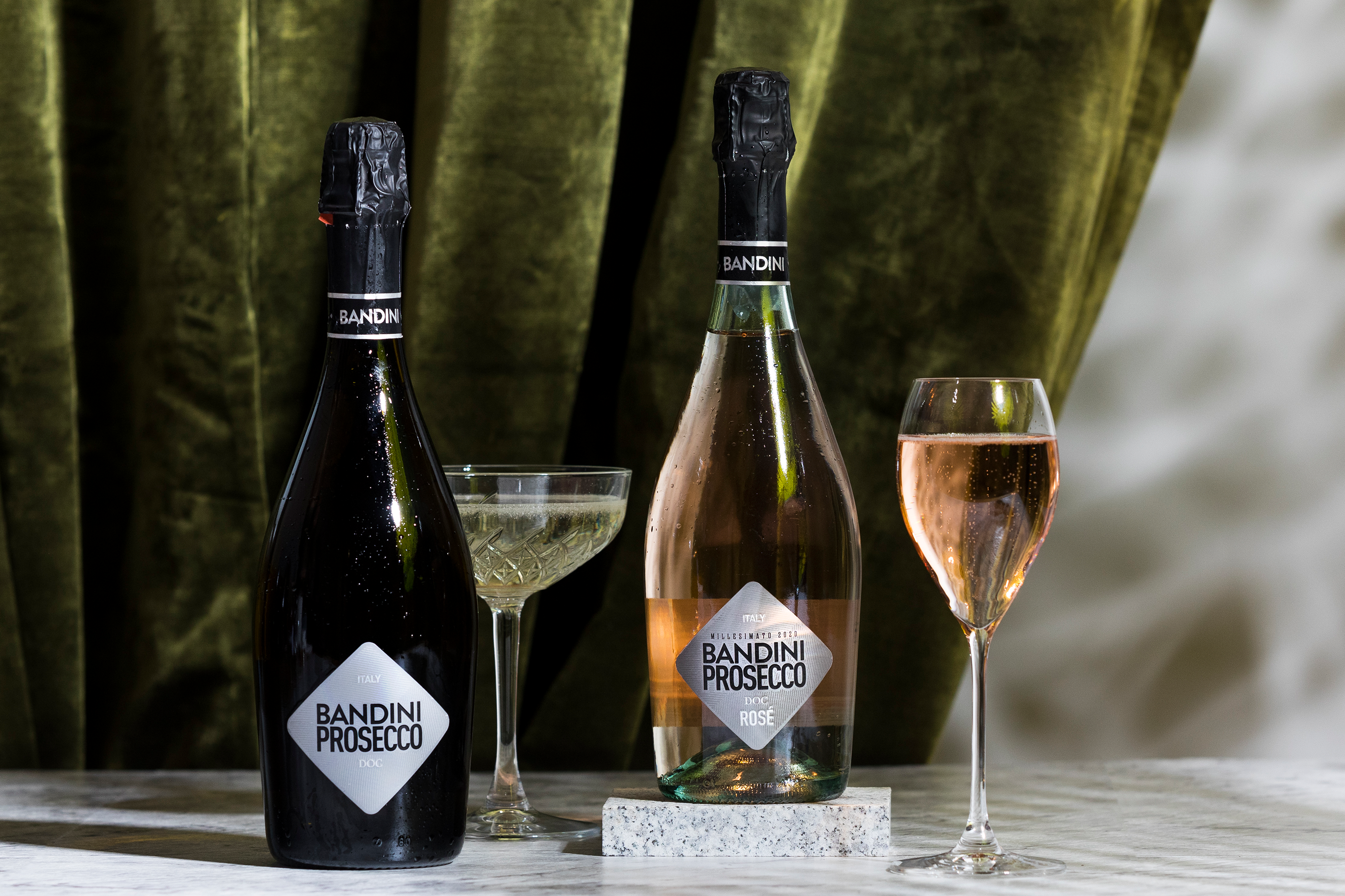
1. PROSECCO AS A G.I.
Without wading into the Aussie v Italian Prosecco debate, the halo effect of the Prosecco region in northern Italy has a lot to do with success of their eponymous sparkling. The stamp of approval by the Italian government and its emblematic D.O.C. neck tag make for elevated, transportive, continental consumer experience without the price tag of Champagne.
2. PRICEPOINT
Speaking of price. It’s important to acknowledge the difference in glass and bottle pricing between Prosecco and Champagne. A decent bottle of imported Italian Prosecco D.O.C. often costing less than half that of a non-vintage champagne with comparable enjoyment factor.
3. LOWER ALCOHOL
The undeniable trend of low alcohol wines sales continues double digit growth as Australian consumers (especially the under 40s) lead the charge in conscious alcohol consumption.
Bandini Prosecco D.O.C. as an example, is 11% ABV which is lower than most Champagnes at an average of 12% while other aperitif wines like Kiwi Sauvignon Blancs can be up to 14% ABV.
4. PINK
A change to the appellation rules by the Prosecco D.O.C. Consortium in 2020, has seen Prosecco Rosé granted the coveted D.O.C. status. An allowance for the addition of up to 15% Pinot Nero to the traditional Prosecco/Glera grape variety has broadened the appeal of Prosecco with its striking peachy pink colour and style, pairing well with more dishes.
5. PERFECT FOR THE CLIMATE
The wine style of Prosecco D.O.C. is extra dry with crisp acidity, delicate and complex with fruity notes of peach, green apple, and melon. Perfect as an aperitivo, delicious with seafood, and ideal for the Australian climate.
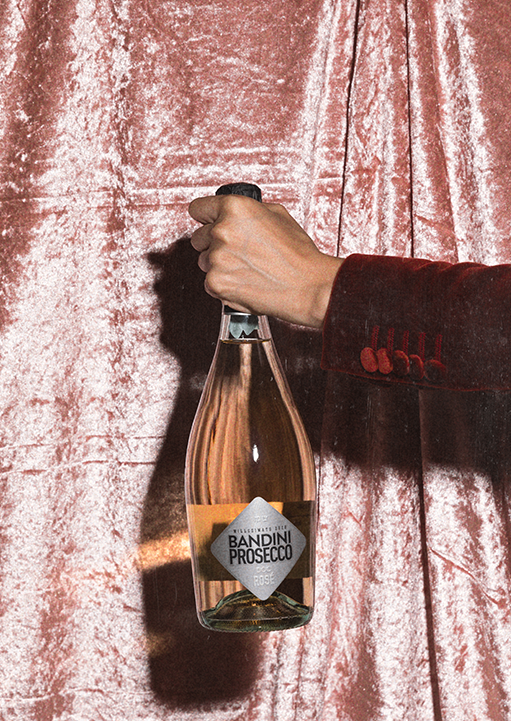
Protecting our Australia
January is often a time that we reflect what it means to live, work and play in Australia. This week, we are celebrating some of our producers who are committed to taking care of our country with their approach to viticulture and winemaking. Protecting our country means protecting the land and waters we love, and celebrating the natural beauty and diversity we are lucky to have.
Hear from some of our winery partners on the importance of sustainability and biodynamic practices and what
Protecting our Australia means to them.
LARK HILL
"I've grown up with grapevines - immersed in an industry where vines are cared for, treasured and expected to last indefinitely - indeed one of the greatest aspirations is to have 'old vines' - so I think sustainability comes naturally. It stands to reason - you can't farm any crop, especially grapes long term without thinking sustainably. Wine has the capacity to draw focus tighter than that though - we talk about Terroir in wine - the idea that wine tastes 'of its place' - the summing up of soil, climate...and so we think about our soil, the land, our country, as having a defining thumbprint embedded in the wines we make - sustainability is about preserving that so that our wines continue to have terroir - a sense of place."
- Chris Carpenter, Winemaker
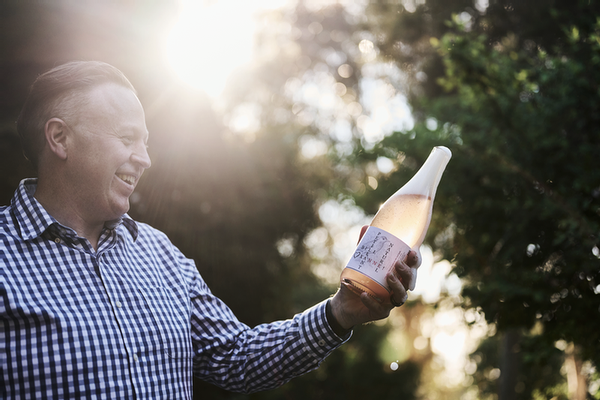
WHISTLER
"Here at Whistler, we are focused on doing the right thing for the long term, no ifs or buts. Since 2013 we have been using organic practices in our vineyard and biodynamics since 2017. Not because it's cool, or on trend, but because we want to leave our patch of dirt in better condition than when we began farming it. We believe that we should blend in with the ecosystem and work with native plants and insects to create quality fruit in a sustainable way. The land benefits, the environment benefits and the consumer benefits."
- Sam Pfeiffer, Director
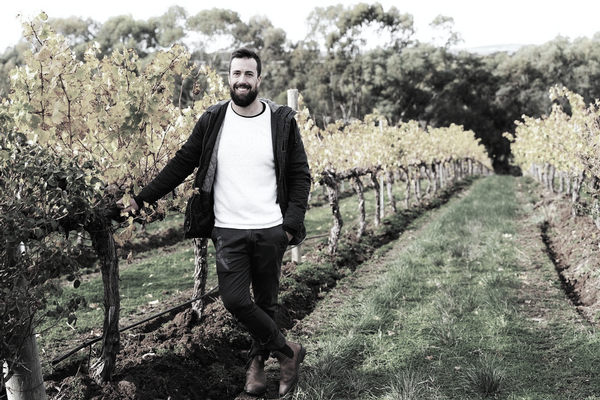
THE PAWN WINE CO
"Rebecca and I strive to be responsible stewards of our beautiful property, not just because it’s the right thing to do for us and our kids, but because it’s the best way to make awesome wine.
We take a whole farm approach, meaning our goal is sustainability of our workers, soils, cover crops, wildlife, native plants, air, water and pest management."
- Tom Keelan, Winemaker
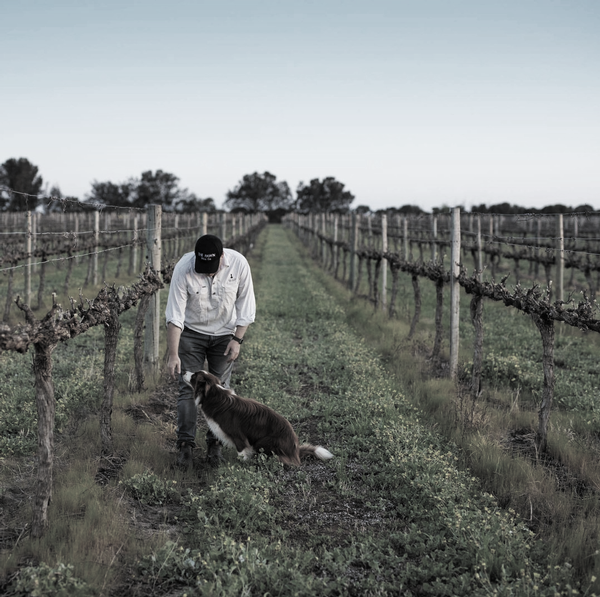
HENSCHKE
"My philosophy is a holistic one – to ensure our created environment sits in a healthy balance with our natural landscape, through the use of organic and biodynamic practices. We acknowledge and pay respect to the Peramangk and Nadjuri people, the traditional custodians of the land where our vineyards stand, and their connections to Country. As a botanist, environmentalist and viticulturist, I have been able to increase native biodiversity in our vineyards, to create a stronger, more balanced ecosystem than the vine monoculture of the past."
- Prue Henschke, Chief Viticulturist
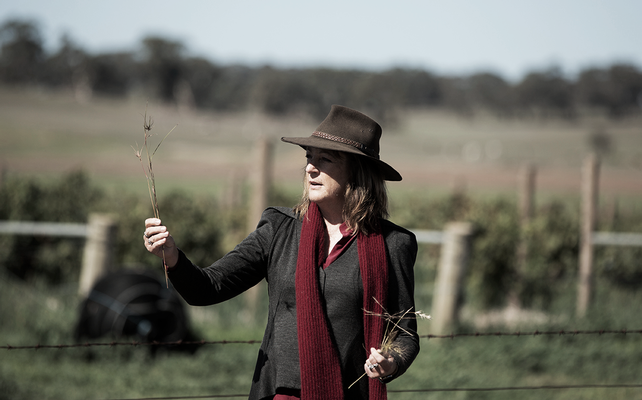
RIESLINGFREAK
"For us, sustainability in the vineyard encompasses land/soil management, use of water, and biodiversity. With the family vineyard, we do what we can to minimise water use, and maintain nutrients in the soil. We currently run a rotational mulching program which improves organic content and encourages favourable microbial growth within the soil. Mulching also inhibits weed growth under the vines and helps with water retention, therefore reducing the need for herbicide application and supplemental irrigation to the vineyard.
In the winery, we practice sustainability by always evaluating practices to minimise energy and water use. Our wines are fined and sulphur is added, but minimal intervention is the aim throughout the process. By minimising additions, transfers and handling, we reduce power, water and chemical usage for cleaning, while maximising the quality of wines we deliver. By committing to bottling our wines as quickly as possible after fermentation, we also trap the naturally elevated levels of Carbon Dioxide in our wines, taking advantage of the natural preservative effect this imparts and reducing our need for sulphur dioxide additions.
From the 2022 vintage onwards, that all fining agents we use during production are plant-based and vegan certified. These next-generation plant-based fining agents are more sustainable to produce than traditional animal based fining agents that utilise egg and/or milk derived proteins, and also make our Rieslings Vegan Friendly."
- John Hughes, Winemaker
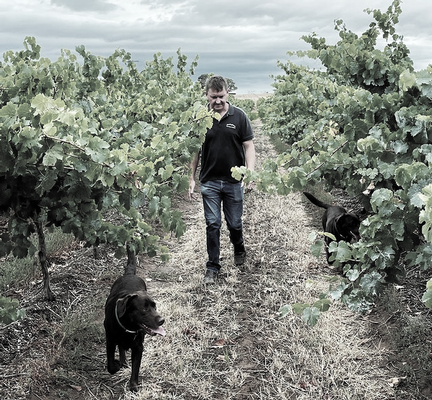
YANGARRA ESTATE VINEYARD
“Through our biodynamic regenerative farming practices and sensitive winemaking philosophies, our respect as custodians of this special piece of country is evident in the wines we produce. Our wines are a reflection of this land, a protected piece of living McLaren Vale history.”
- Peter Fraser, Winemaker
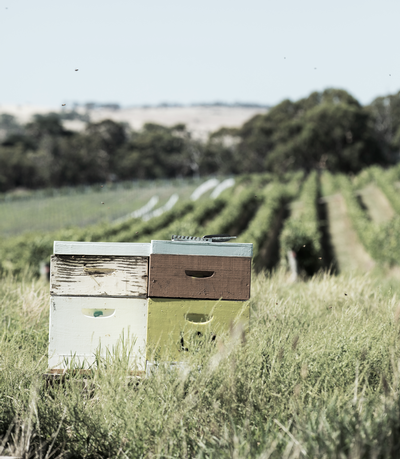
CULLEN
“Cullen Wines in Wilyabrup, Margaret River, are global leaders in sustainability and quality, being certified biodynamic carbon positive and having being certified organic or biodynamic for 19years! Authenticity in sustainability since the beginning making the best wines from the land. Cullen Cabernet Sauvignon vines were planted in 1971 and the vineyard with its gravel, granite ancient soils and maritime aspect are perfect for the Cabernet Sauvignon and family blends. Our Diana Madeline Cabernet family and blend is our flagship red wine. Diana Madeline herself turns 100 in 2023. She was a matriarch and a passionate advocate of both the environment and quality wine. They go hand in hand as the best quality fruit and wine comes from our biodynamic practices... best for the planet too!! Di always said “quality not quantity” Add sustainability and it’s good for everyone. Just so good!!"
- Vanya Cullen, Chief Winemaker
